|
Iraq and the Political Idealism of the "Neocons"
While the operation against al-Qaeda and the
Taliban had been building in Afghanistan (and Pakistan), Bush's
thoughts had never been far away from the perceived dangers coming from
Iraq and its dictator, Saddam Hussein. Indeed, one of the things that
marked the Bush presidency from its earliest days was the great
antipathy that the Bush White House had to Saddam Hussein, and its
determination to remove Saddam from power. Pushing this idea strongly
was the formidable neoconservative (or "neocon") team of Donald
Rumsfeld, Dick Cheney and Rumsfeld's Assistant Defense Secretary Paul
Wolfowitz. But Bush himself was also largely in line with this point of
view.
The neocons represented the old
tradition of Democratic Idealism, but a hawkish Idealism pushed by
all-out force rather than by the dovish Idealism promoted through
diplomatic appeasement. According to neo-con thinking, Saddam was a
dictator, an evil dictator, and he needed to go. With his disappearance
the Iraqis would have a wonderful opportunity to come to Democracy on
their own. And this Iraqi Democracy would stand in stark contrast to
the repressive Arab regimes that surrounded it. Iraq would become a
beacon of democracy offering hope to the rest of the Arab or Muslim
world. This fit well with Bush's concept of compassionate conservatism.
A strongly compassionate neoconservative stand on behalf of global
democracy was the very thing that supposedly dignified America. It had
long been (at least since the days of Woodrow Wilson a century earlier)
a key part of America's "compassion" with respect to the rest of
mankind. And thus the title "compassionate neoconservative" was a name
that these White House neo-cons intended to wear proudly.
With the events of 9/11, the neocon team
jumped at what they saw was the opportunity to connect Saddam with the
terrorist attack. In accordance with the new Bush Doctrine, any country
(except obviously Pakistan!) giving sanctuary or aiding in any way the
terrorists of 9/11 the Bush White House in its War or Terror was bound
to take down. Obviously (obvious to Bush and the neocons, anyway)
Saddam must have been guilty of at least such support ... placing
Saddam into the category of "terrorist enemy." The neocons felt that
they finally had in this anti-terrorist logic all the justification
they needed to go after Saddam.
Disagreements within the Cabinet
However, CIA chief George Tenet,
Secretary of State Colin Powell and National Security Advisor
Condoleeza Rice were very hesitant about going after Saddam. To their
understanding, the war in Afghanistan against al-Qaeda had to take
precedence over any attack on Iraq to remove Saddam; there was little
evidence that Saddam was connected with the 9/11 events; and failing to
be able to demonstrate such a connection, America would not likely get
the support from its allies that it would need to conduct effectively
an attack on Saddam in Iraq. And there was always the question of what
to do with Iraq if and when Saddam fell.
Cheney had quite conveniently forgotten
about his 1994 "quagmire" comment concerning Iraq, an earlier insight
resulting from his having served Bush Sr. as Secretary of Defense. But
Tenet, Powell and Rice still saw Iraq in that very same light. To go
crashing into Iraq to overthrow the Saddam regime and put in place
there a "democracy" was guaranteed to throw America into a quicksand of
chaos, which would prove immensely expensive to then try to bring some
degree of order there, and for which America itself would ultimately
derive no visible benefit.
But that kind of insight was lost to Bush and the neocons, who were determined to go anyway.
Thus in his State of the Union address in
January of 2002 Bush drew Iraq into his list of America's enemies in
their "War on Terror" by describing an "Axis of Evil" of North Korea,
Iran and Iraq, constituting a growing threat to the world. Then too,
the question of Saddam's role in this War on Terror would frequently be
brought up at press conferences. Clearly the War on Terror had not only
bin Laden and al-Qaeda in its gun sights, but also Saddam Hussein.
Weapons of Mass Destruction (WMDs)
However, as time went on and it
increasingly appeared that there was no way to connect Saddam with
9/11, a new approach to the Saddam question began to be looked at with
greater interest by the Bush cabinet. Saddam boasted a lot about his
contempt for the UN's restrictions and sanctions concerning biological
and chemical weapons that he was supposed to get rid of, and of nuclear
development that was forbidden to Iraq. Boasting was one of the ways
that Saddam attempted to keep a tight lid on Iraqi politics and a firm
grip over the various ethnic sub-communities that made up Iraq. Such
boasting however gave the neocons the "proof" they needed that Saddam
was indeed developing weapons of mass destruction (WMDs), in violation
of a number of U.N. resolutions. Therefore, America now clearly had
moral grounds for taking action against Saddam – or so they hoped.
But here too, to get the international
community behind such a move, Bush would need some kind of direct
testimony from Iraqis themselves concerning Saddam's criminal
activities. Besides the Saddam boasting, all that they had was the
testimony of a group of Iraqi expatriates who called themselves the
Iraqi National Congress (INC) – who had gathered around the leadership
of Ahmed Chalabi. Chalabi had a deep hatred for Saddam, in great part
because of Saddam's horrible persecution of the Iraqi Shi'ites,
(Chalabi was a Shi'ite).
As an expatriate mathematician (with a
Ph.D. in mathematics) and businessman living in the West since 1956,
Chalabi had cultivated politicians in Washington (including the
neocons Rumsfeld, Cheney and Wolfowitz) who believed that he could be
the very person to replace Saddam, should the dictator fall. But
Chalabi's personal background was troubling. Some CIA reports indicated
that he could not be exactly trusted at his word – and that he might
even be a double agent working with the radically Shi'ite Iranian
(Islamic Republic) government. Powell's State Department did not trust
him either, finding no support for him, or even knowledge of him, in
Iraq – and also wondering what happened with all the money that had
been handed to him to support the INC.
But Rumsfeld and Cheney paid more
attention to Chalabi's claim to have knowledge of the development of
WMDs going on in Saddam's Iraq than they did to the hesitations of the
CIA and State. Chalabi had given them exactly what the neocons wanted
to hear.
Taking the case to the World
Powell however was balking at the neo-con
position, which he felt was moving faster than the rest of America's
allies were ready to move. He was afraid of a developing
"unilateralism" on this matter ("forget the rest of the world; we can
do this ourselves if need be"). Powell would get much appreciated
support for his position when British Prime Minister Tony Blair arrived
in Washington. Blair made it clear that Britain would gladly support an
anti-Saddam action – but only if it got U.N. approval for action. That
of course would require well-demonstrated violations by Saddam of the
restrictions placed on him by the U.N.
And so on September 12, 2002 (almost
exactly one year after the 9/11 event) Bush went before the United
Nations to lay his case for the necessity of an invasion of Iraq to
depose Saddam. He listed WMDs as the danger that faced the world if it
did not act with the U.S. in deposing this dictator.
But some of America's traditionally
strongest allies, France, Germany, Canada and New Zealand had strong
reservations about the matter. They viewed the anti-Saddam move as a
distraction from the real business at hand in Afghanistan. They worried
about what would happen to Iraq if Saddam were suddenly removed from
the political scene. Then there was also the major principle that would
be violated in invading another country without major compelling
reasons. Saddam was a nuisance. But a threat to the world necessitating
his and his government's elimination? Where was the American case for
that? Where was the hard evidence that pointed to the need for the kind
of action that the Americans were requesting?
Finally in November, the U.N. Security
Council arrived at a compromise (Resolution 1441) which called for
renewed inspections by a U.N. inspections team – and the threat of
"serious consequences" if Saddam did not accept this decision. But both
Russia and France let Bush know that "serious consequences" was not to
be automatically interpreted as the right of America to invade Iraq.
And so the U.N. inspectors were sent off to Iraq to search for WMDs. It
was not exactly what Bush wanted. But it was a start.
Bringing Congress on Board Concerning Iraq
Now it was time to get Congress's
backing. Bush put before Congress in October a request for a resolution
authorizing the use of U.S. armed forces against Iraq. At this point
Tenet was brought before the Senate to testify about what the CIA had
to say about the situation. But he confessed that the CIA had no
intelligence estimate (study or report) on Iraqi WMDs! The Senators
were astonished. Here the White House was clearly trying to move the
country toward some kind of military engagement against the Iraqi
government – and the CIA had no information to offer on the subject?
Tenet confessed that the Agency was busy in Afghanistan and had not
found the time to do a study on the subject! Actually, Tenet knew that
the CIA had no firm data to back up the White House's WMD claims and
was trying to skirt the subject. But the Senate insisted that he come
up immediately (within two weeks) with a complete Iraqi estimate.
Meanwhile Rumsfeld's Pentagon
intelligence service (the Defense Intelligence Agency or DIA) came up
with its own "smoking gun" evidence: proof that the African country
Niger had sold yellow cake uranium to Saddam. Saddam, according to the
DIA, was indeed working on nuclear energy development in violation of
all U.N. resolutions – with the clear intent of developing a nuclear
bomb. This and other documents had been sent on to the CIA and other
intelligence services by the Italian intelligence service – but had
been dismissed by the CIA as likely forgeries. But then the DIA
published its own intelligence assessment describing the yellow cake
sales and also the discovery of some aluminum tubes designed to be used
in centrifuges employed in enriching uranium. The CIA had been upstaged
by Rumsfeld's DIA.
At this point Tenet did what no true
intelligence officer should ever do, which is to come up with the
"facts" that he knows others want to hear. But that is exactly what he
did. Rumors of aluminum tubes that were part of nuclear development
that had been spotted in Iraq and mobile truck units possibly carrying
biological weapons were now certified as being more than rumors but
indeed hard fact (which Tenet knew was not the case). The sure and
certain existence of WMDs in Iraq now become the official stand of
Tenet. He had fallen in line with the neocons Rumsfeld, Cheney and
Wolfowitz.
And thus Congress on October 16th gave Bush the much-wanted
authorization to go to war against Saddam. It was just weeks before a
Congressional election and few Congressman, not even the Democrats,
were eager to appear to go on record as being opposed to a war against
a known evil dictator. The support was overwhelmingly in favor: 297 for
(215 Republicans and 81 Democrats) and 133 against (6 Republicans, 126
Democrats and 1 Independent) in the House and 77 for (48 Republicans
and 29 Democrats) and 23 against (only 1 Republican, 21 Democrats and 1
Independent) in the Senate.
Trouble Getting the World on Board
However, the harder Bush tried to make a
case, the harder some of America's allies, most importantly France,
worked to head off the move that Bush was clearly intent on making. The
situation for America was not being helped any by reports from the U.N.
inspectors in early 2003 that so far, their search had revealed no
WMDs. They had discovered some materials and problem areas in Iraqi
reporting. Saddam was not being cooperative. But the inspectors
themselves had nothing yet that pointed to actual WMD production or
even possession.
By now heavy pressure was being exerted
on Powell as Secretary of State not only to be brought into the Cabinet
"circle of the willing," but to stake his unimpeachably high
international reputation in going before the world community to explain
the American case in a final effort to get our allies on board with us.
The event that finally got Powell on board was an inexcusably rude
treatment of Powell by the French Foreign Minister Dominique de
Villepin. Powell was now ready to go.
On February 6, 2003, Powell went before
the U.N. Security Council – complete with photos, drawings and
illustrations of what U.S. intelligence had "confirmed" as pointing to
WMDs. He also tried to draw a connection between Saddam and al-Qaeda
claiming the existence of a training camp in Iraq under al-Qaeda
operative Zarqawi. The tragedy was that none of this information that
had been passed on to Powell to present at the U.N. had been verified
by normal intelligence gathering standards. Almost all of it would soon
prove itself to have been either totally false or simply hyped in order
to achieve the desired effect. But in any case, the presentation did
not move Russia, China, France or Germany away from their strong
skepticism, even growing opposition, about the American program. A week
later the U.N. inspectors' chief reported that the Iraqis were becoming
more cooperative – and that there were serious problems with a number
of Powell's assertions.
In fact outside of America, the support
for America's attack on Iraq was quite weak. On February 15 an
internationally organized anti-war protest turned out somewhere between
six to ten million people in approximately 800 cities around the world.
Even in Britain itself, where the Blair government was supportive of
America, clearly the British people were not. Tragically for Blair, the
Iraqi war in fact would prove to be the political undoing of a British
prime minister who up until then had one of the highest popularity
ratings ever with his people.
Nonetheless, toward the end of February,
America, with its allies Britain and Spain, presented the proposal for
a new U.N. resolution certifying that Saddam had not cooperated fully
under the terms of Resolution 1441. Thus, as America saw things, it was
time to kick into gear the "serious consequences" portion of 1441.
Passage of this new resolution would have given some kind of support to
American actions in Iraq. But it became apparent that the proposal was
supported only by its three sponsors plus Bulgaria. France, Russia and
Germany were strongly opposed. Seeing that failure in a vote would be
worse than no vote, the proposal was withdrawn. These were not good
signs for Bush.
| 
 The
idea of extending the "Bush Doctrine" to Saddam Hussein
The
idea of extending the "Bush Doctrine" to Saddam Hussein
 Bush
decides that it is time for Saddam Hussein to go – April 2003
Bush
decides that it is time for Saddam Hussein to go – April 2003
 Things
begin to bog down for the U.S. in Iraq
Things
begin to bog down for the U.S. in Iraq
 2004:
The situation in Iraq worsens
2004:
The situation in Iraq worsens
 The 2004 presidential election
The 2004 presidential election
 The situation continues to deteriorate in Iraq
The situation continues to deteriorate in Iraq The 2007 "troop surge"
The 2007 "troop surge"




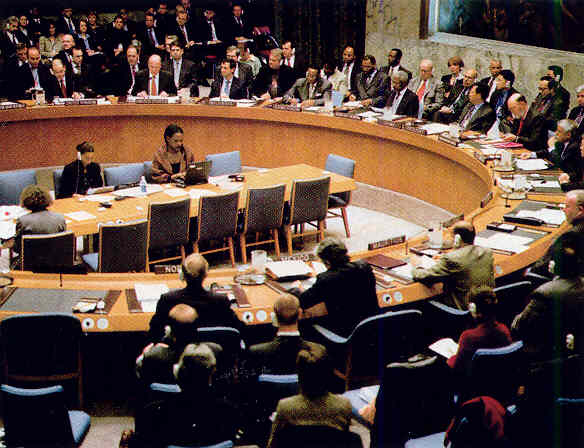
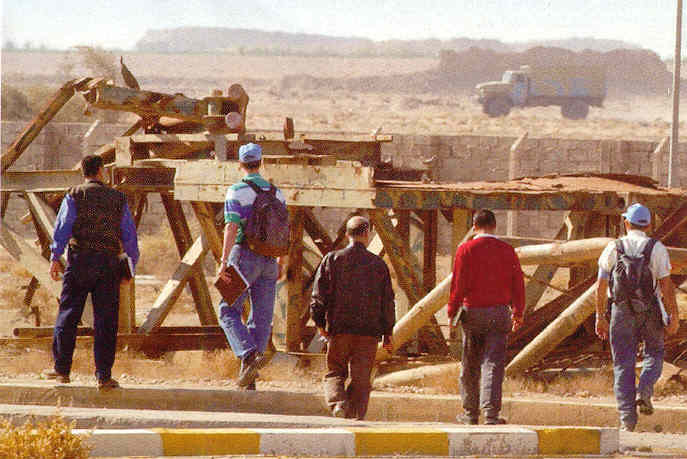
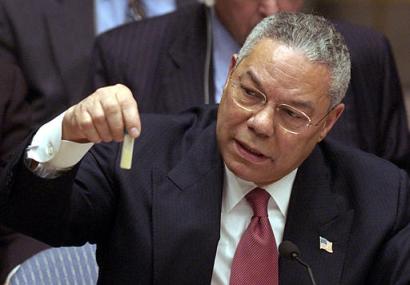
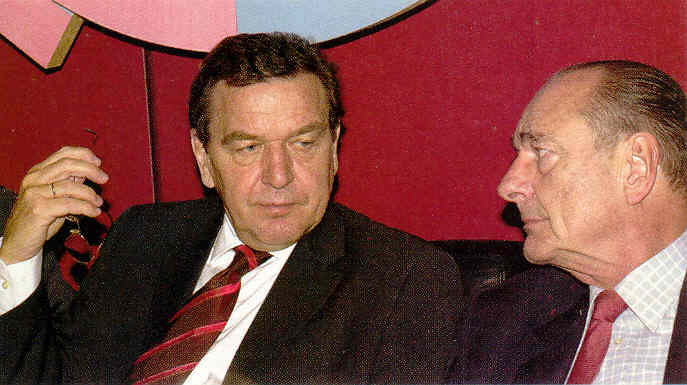
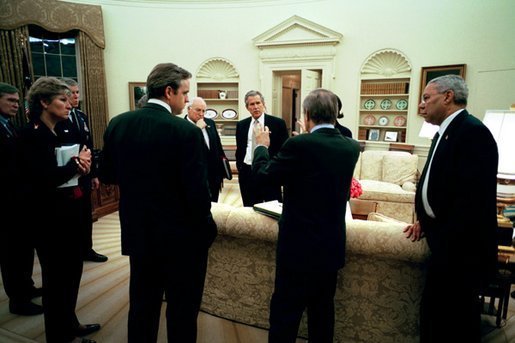
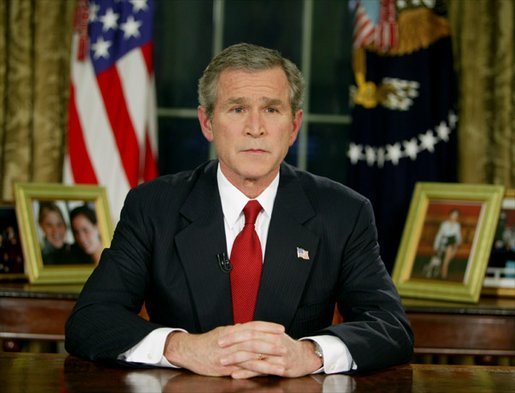
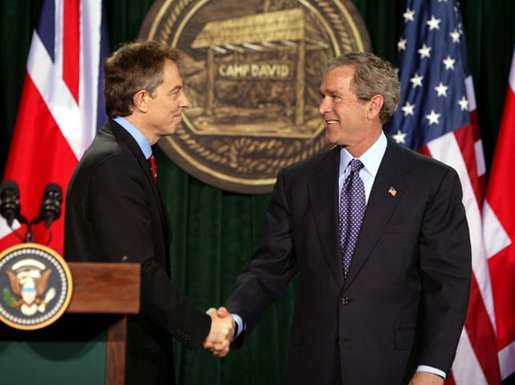
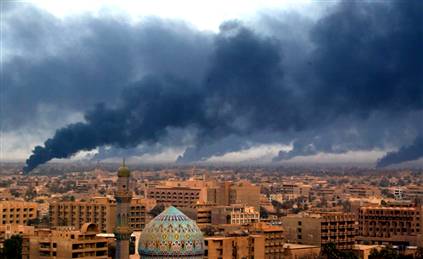
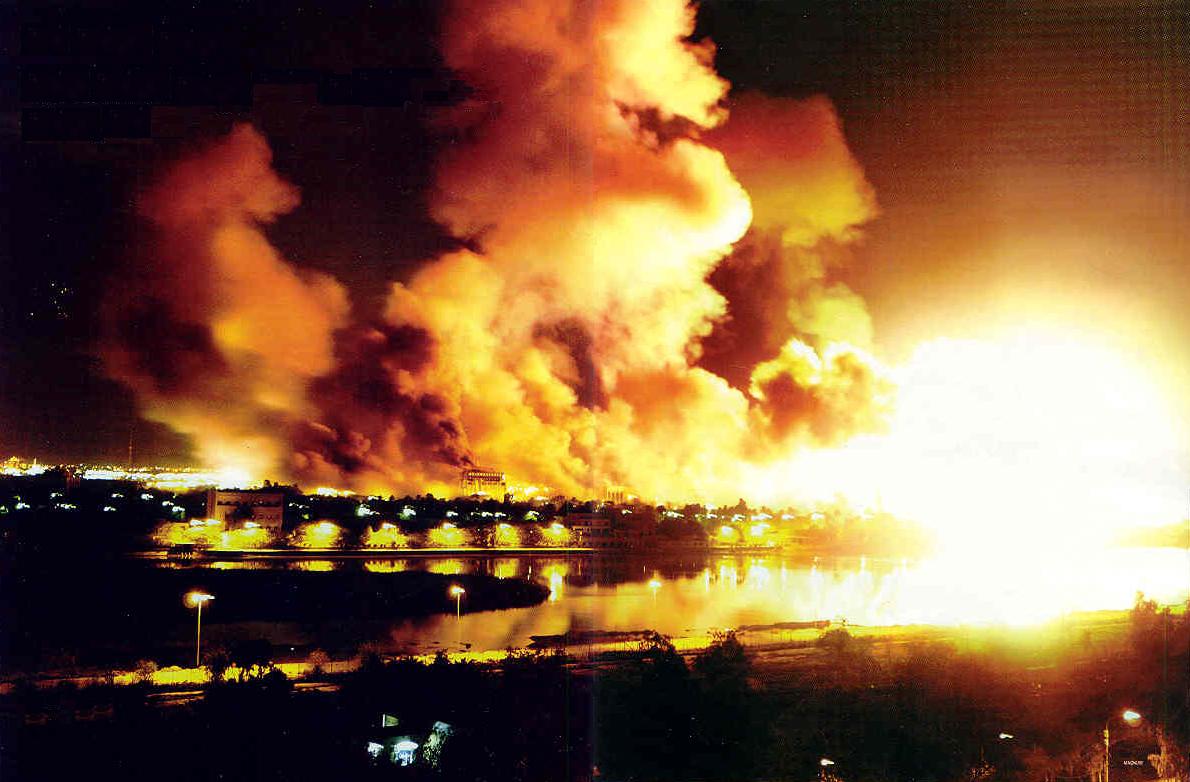

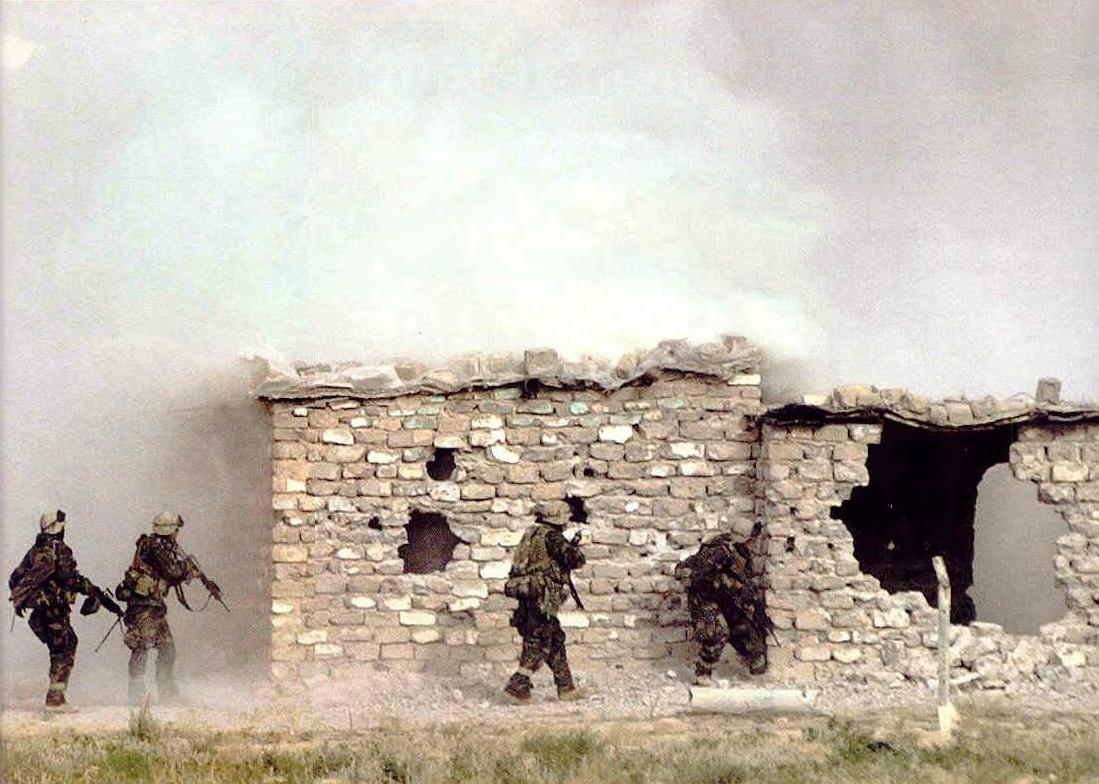
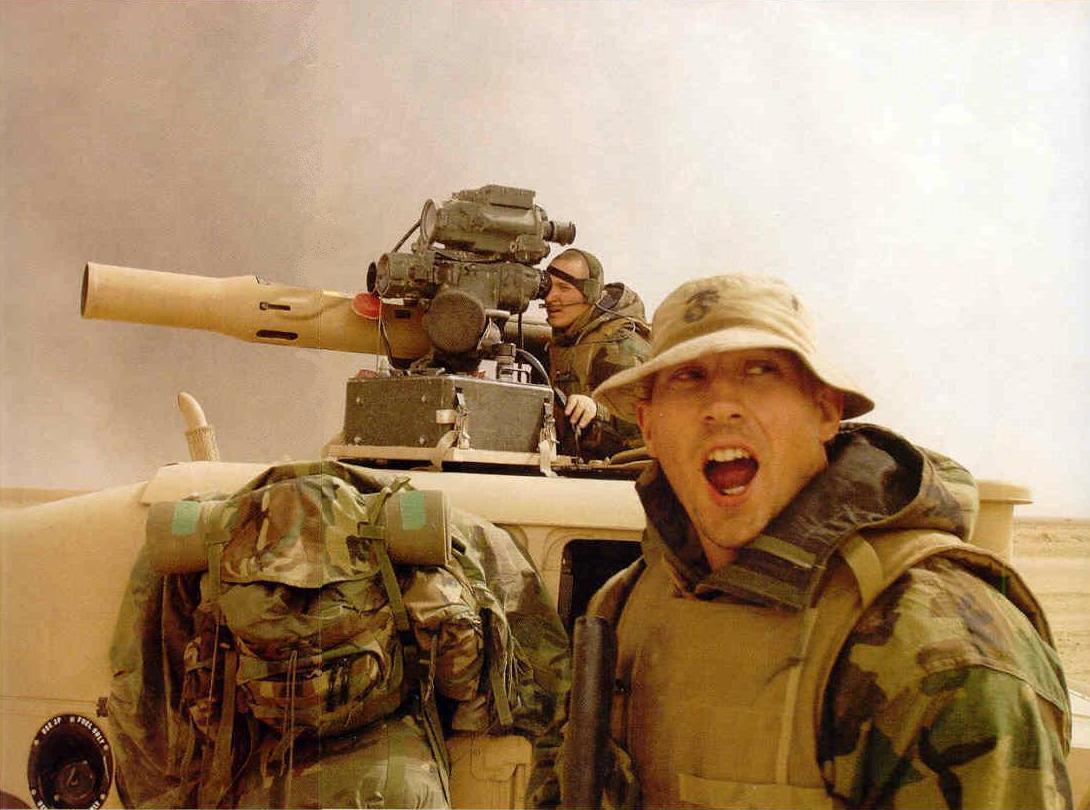
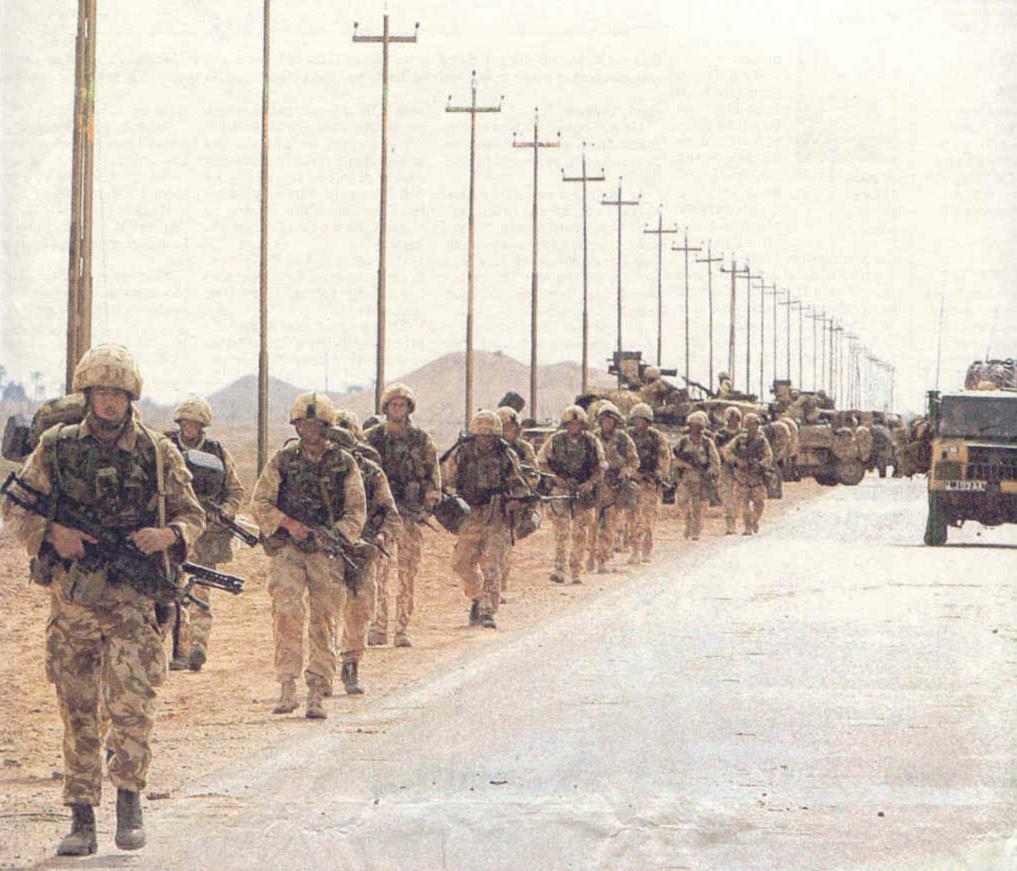
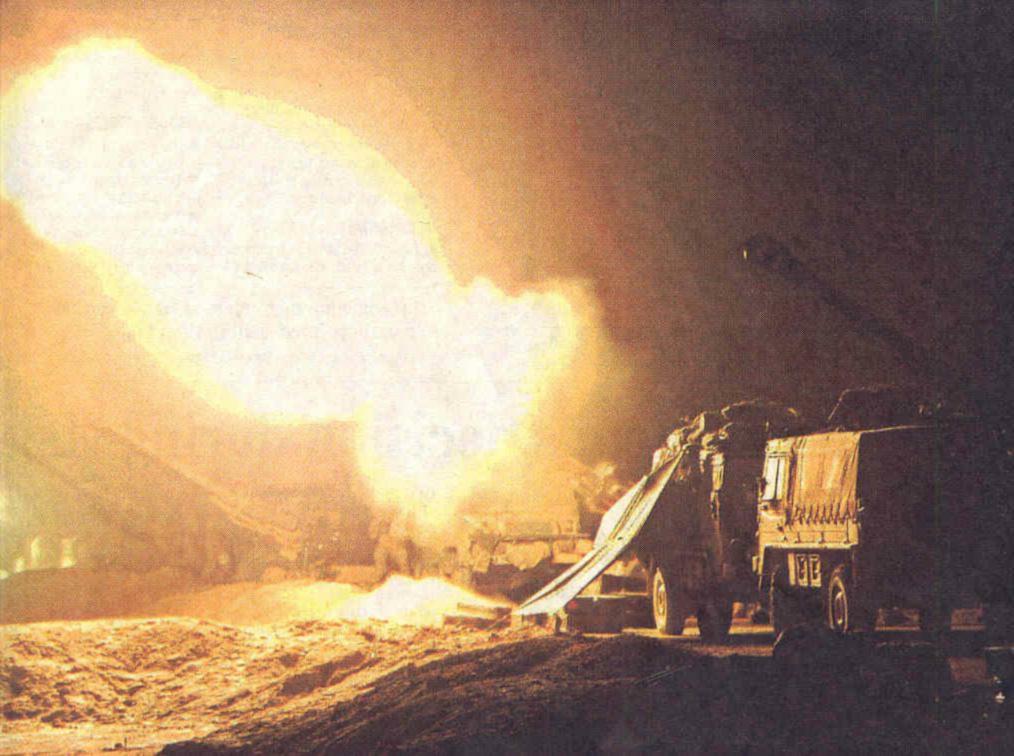
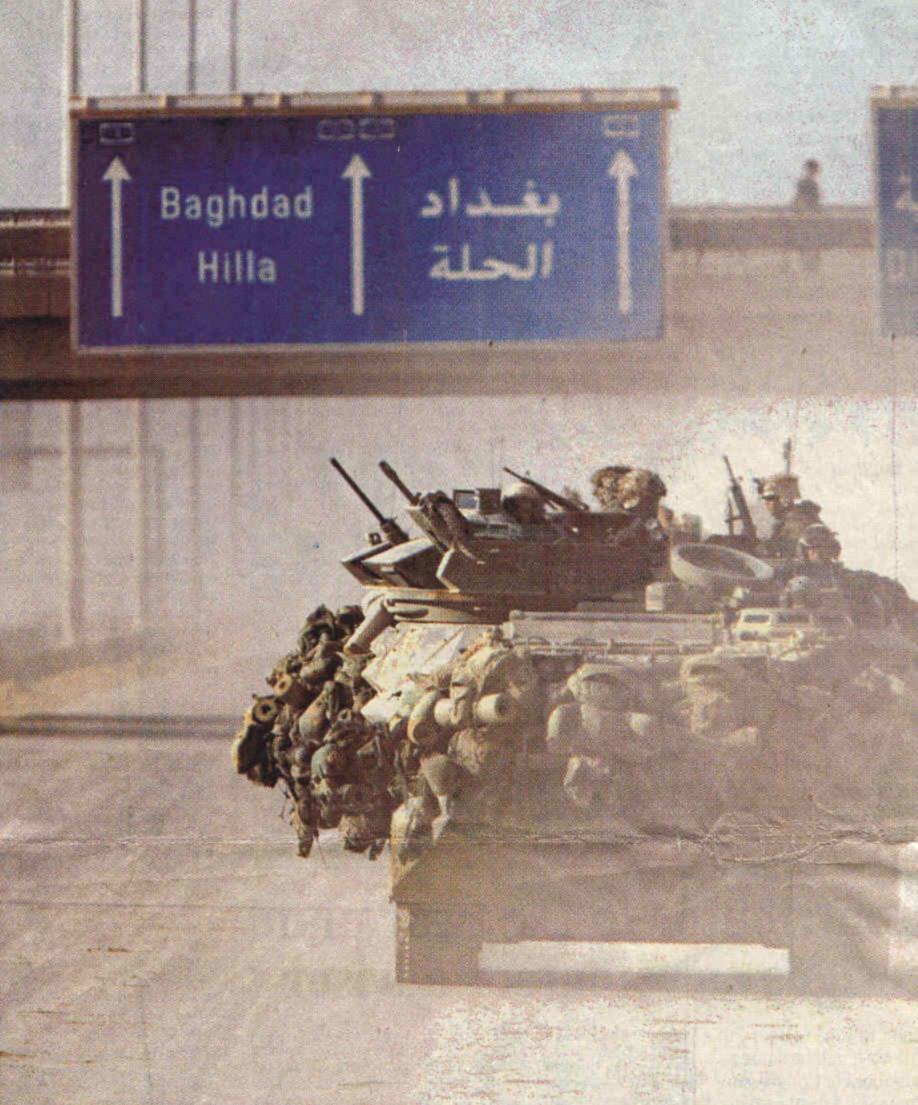
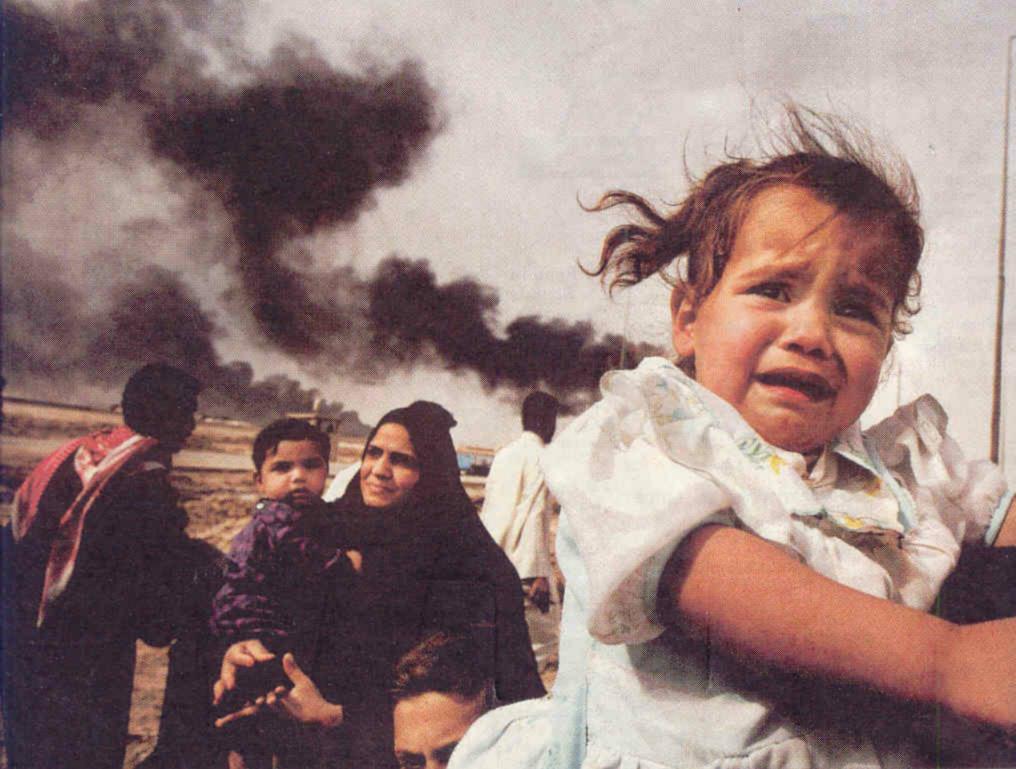
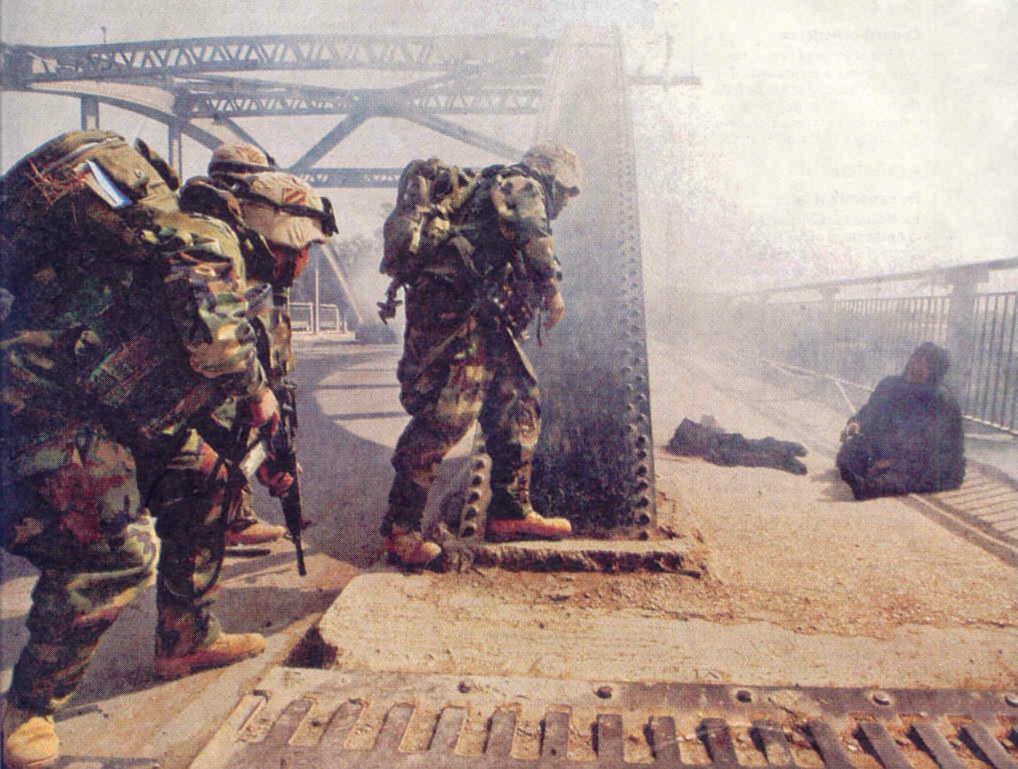
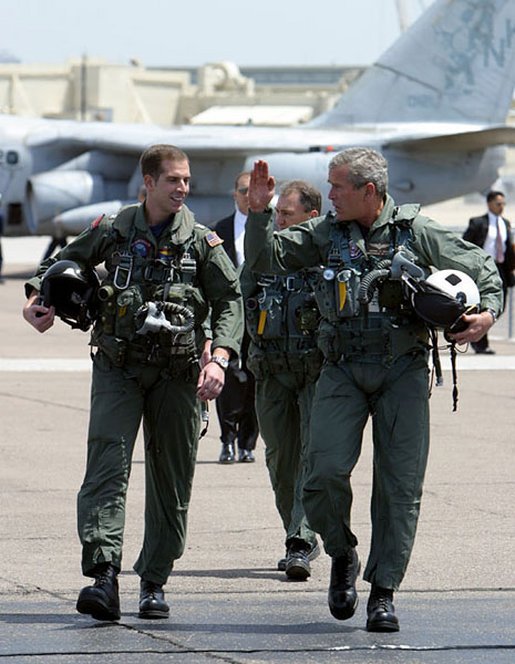
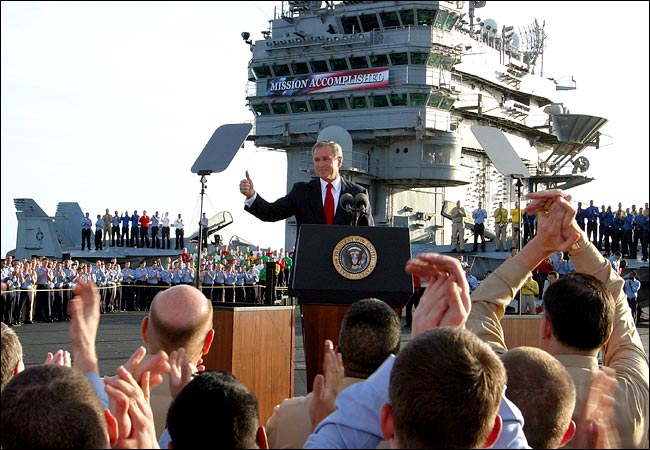
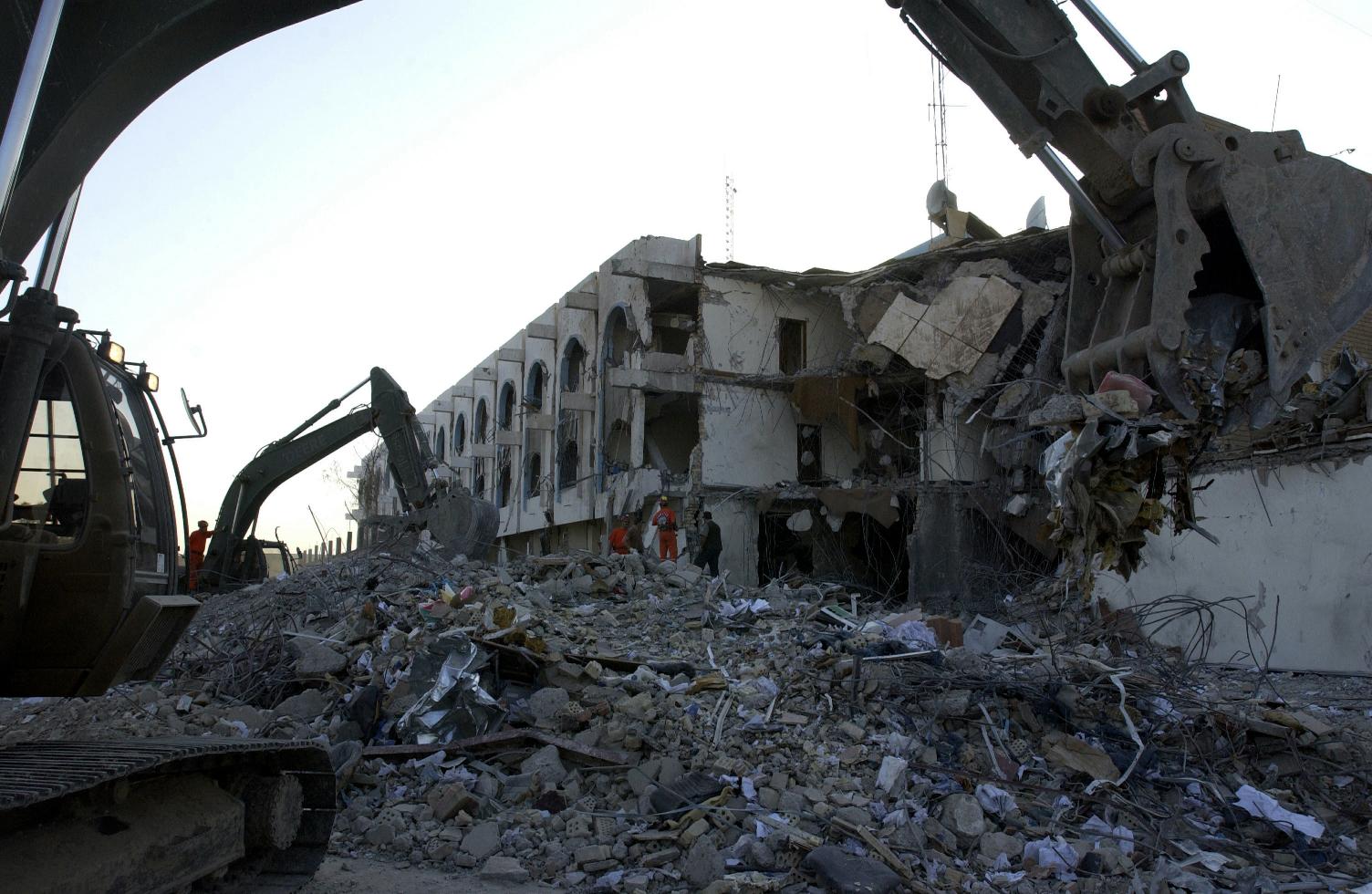
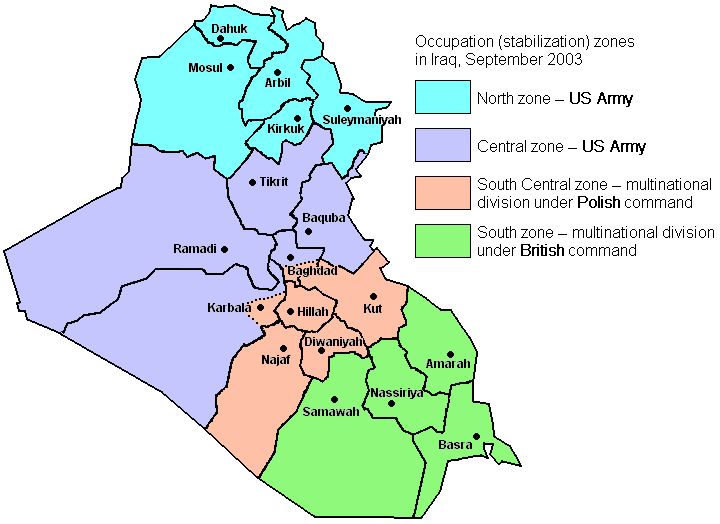
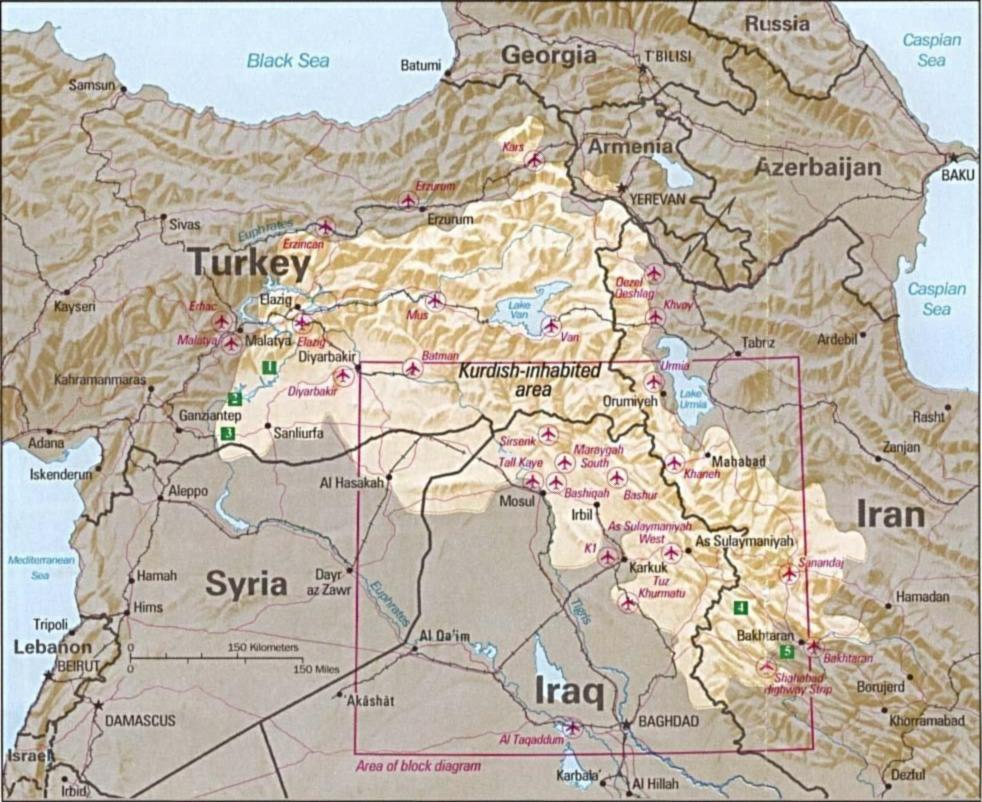
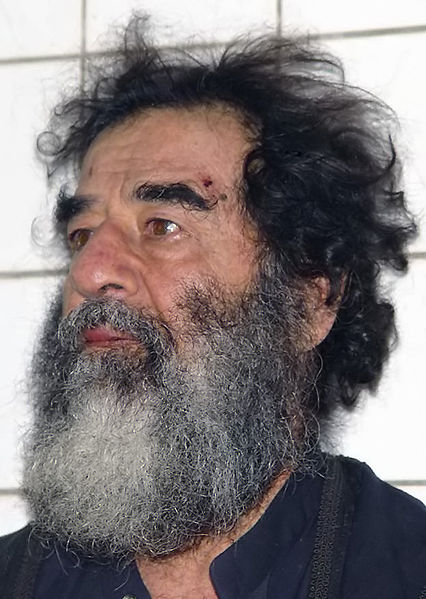
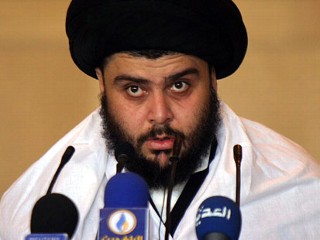
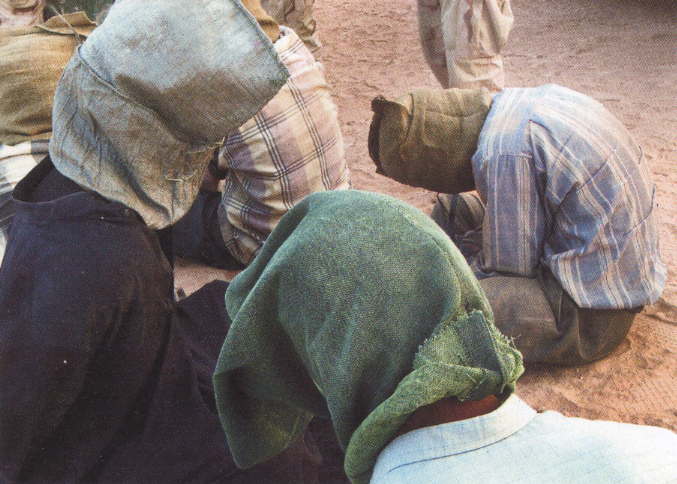
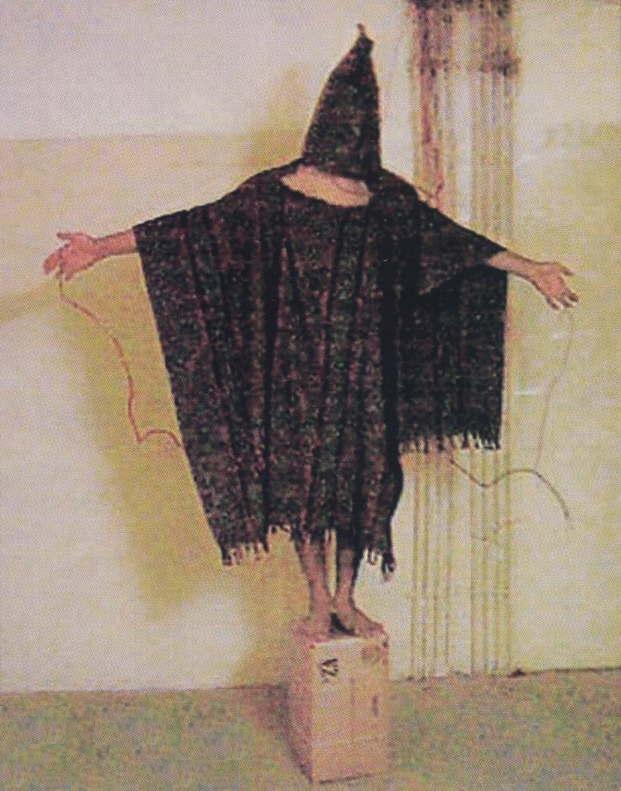
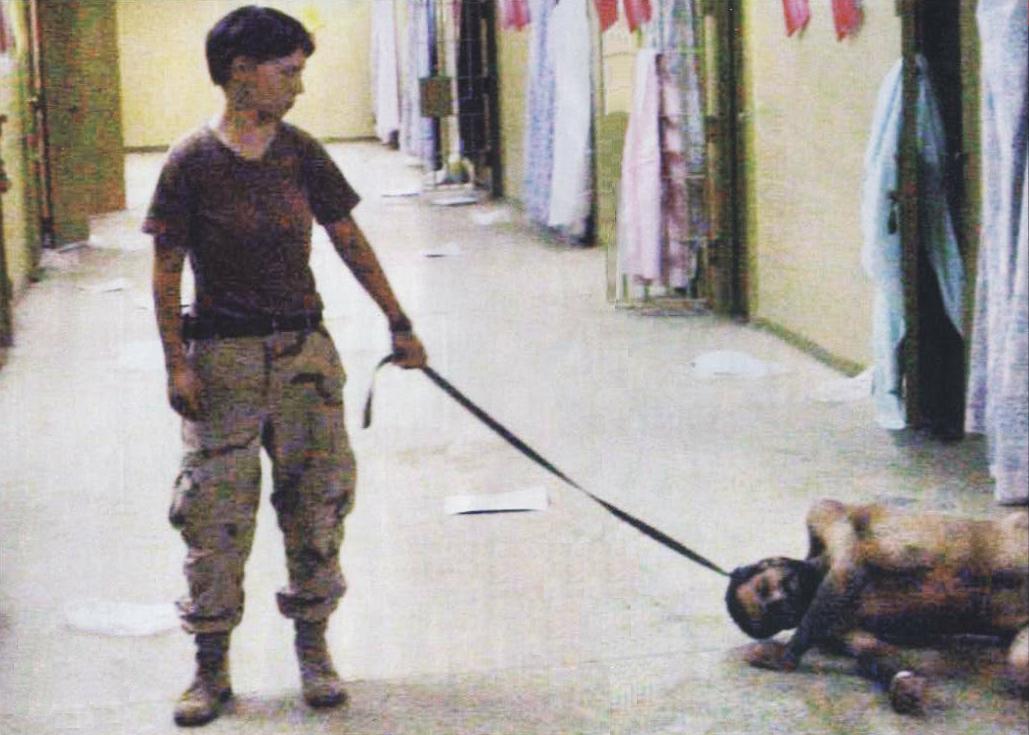
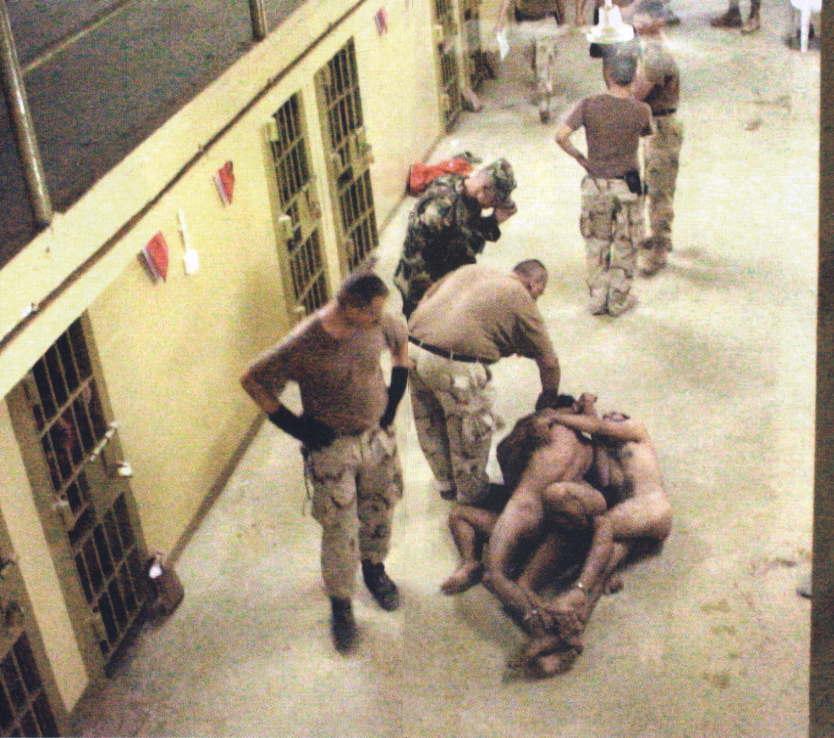
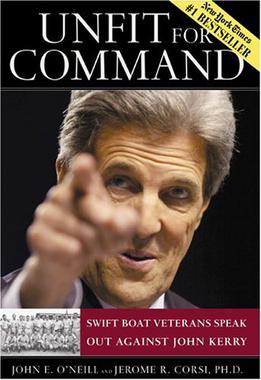
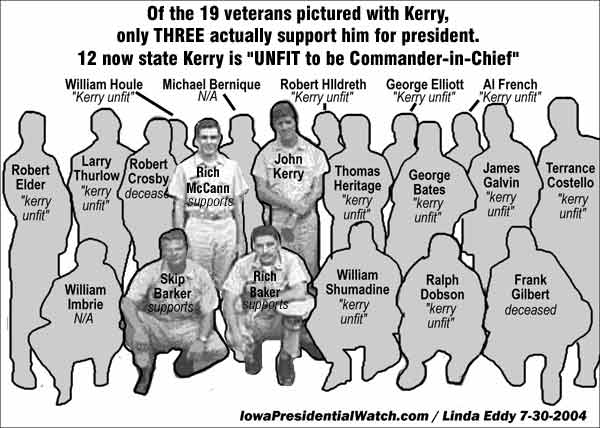
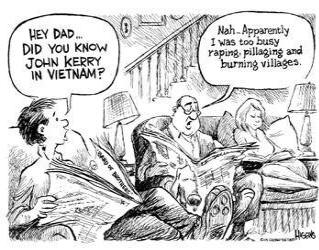
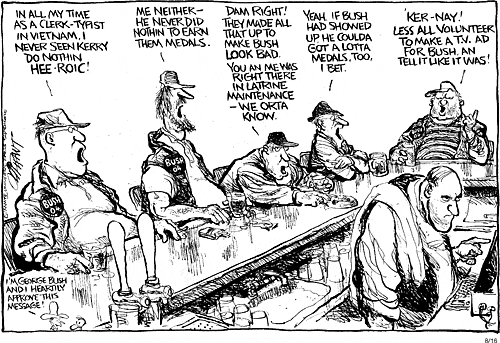

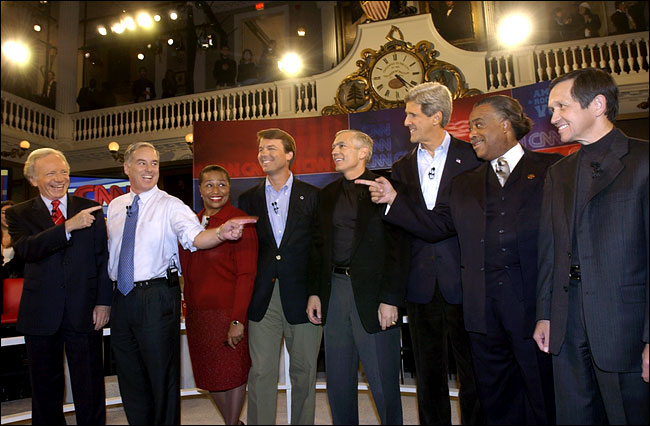

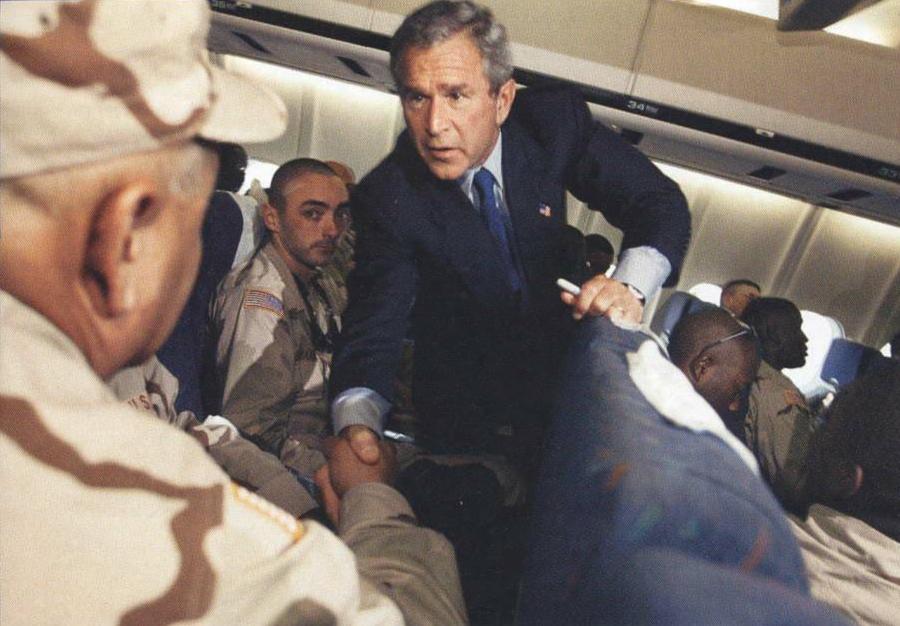
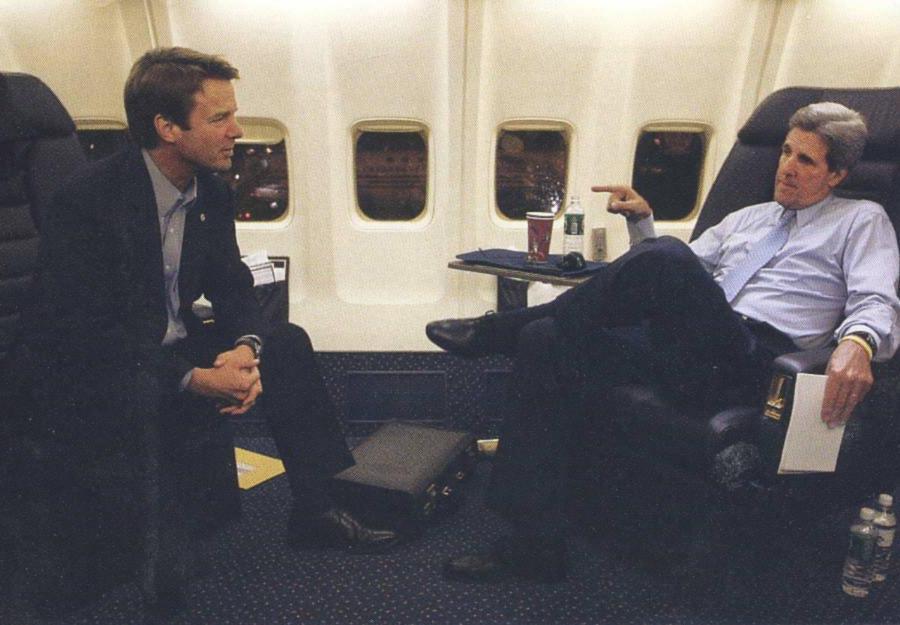
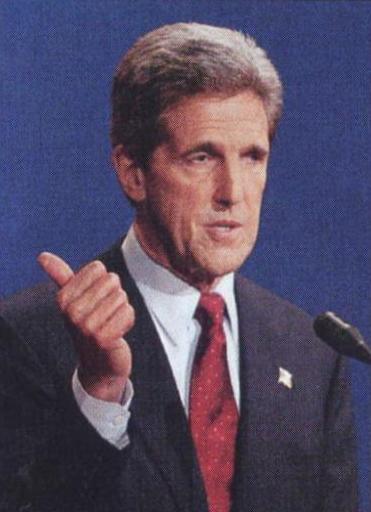
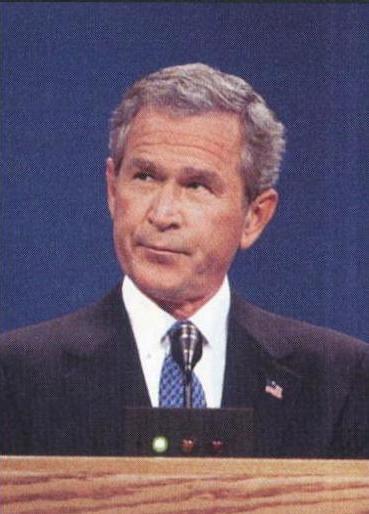
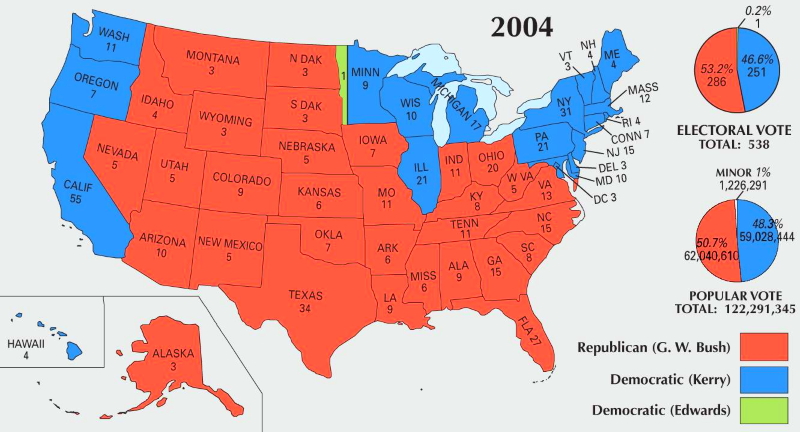
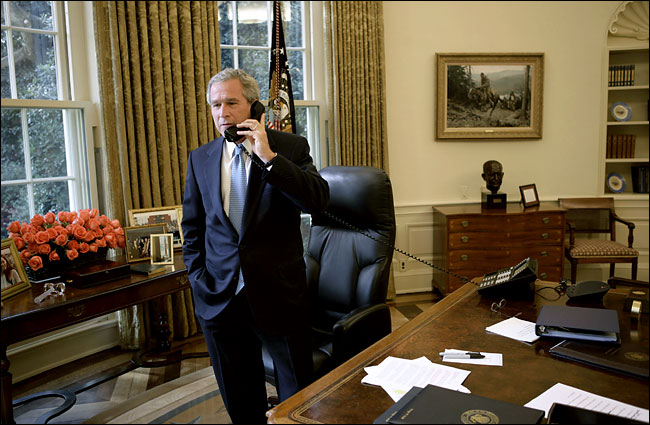
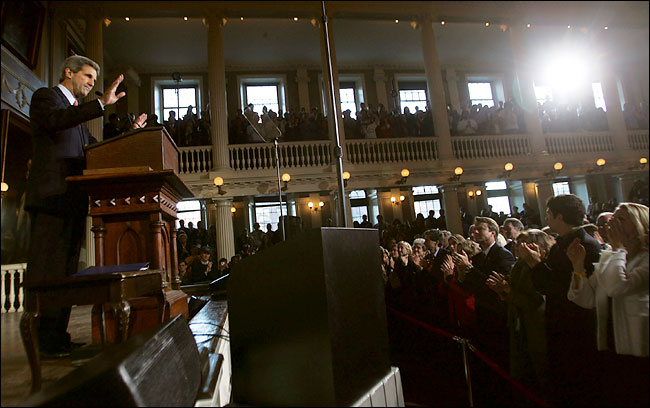
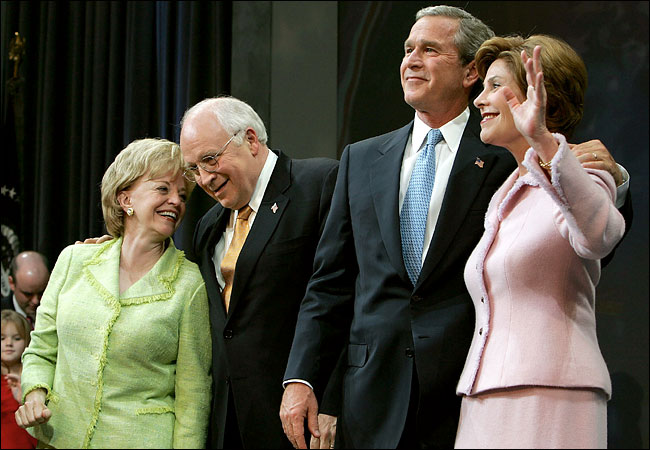

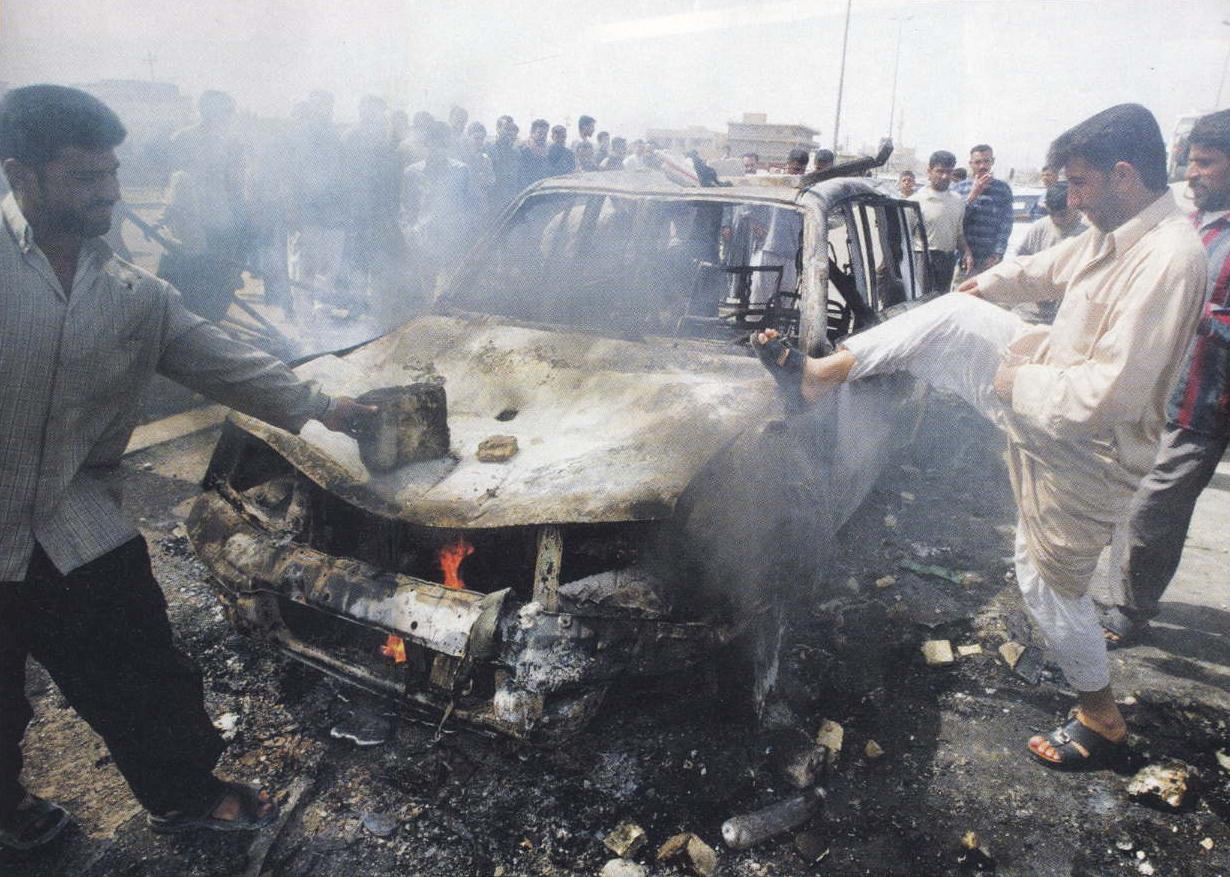
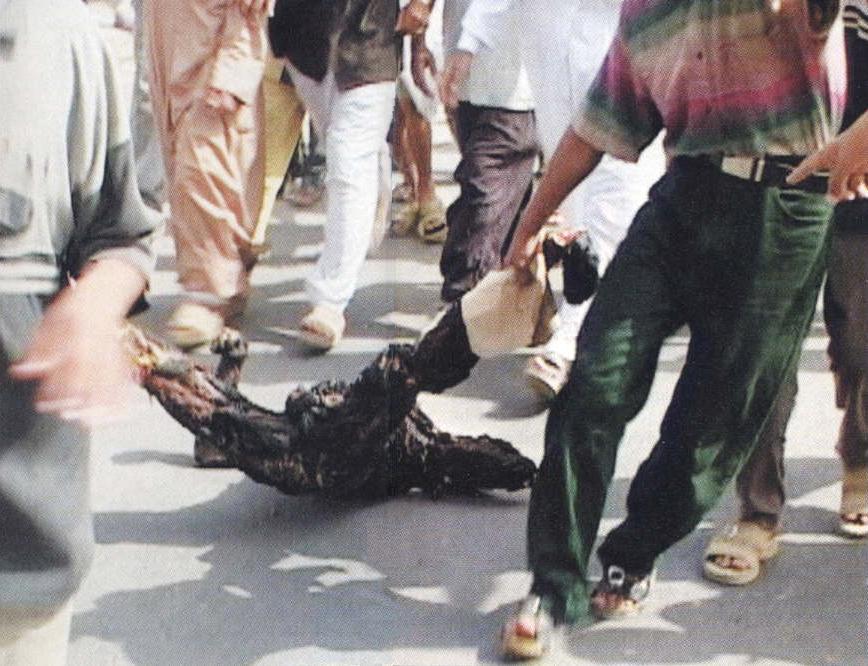
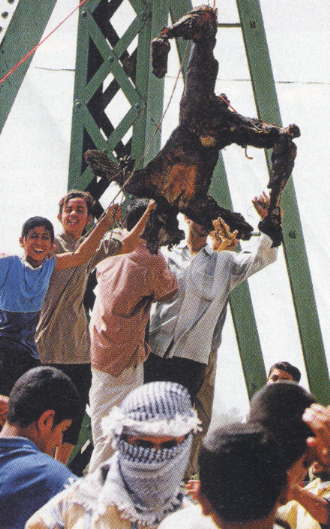
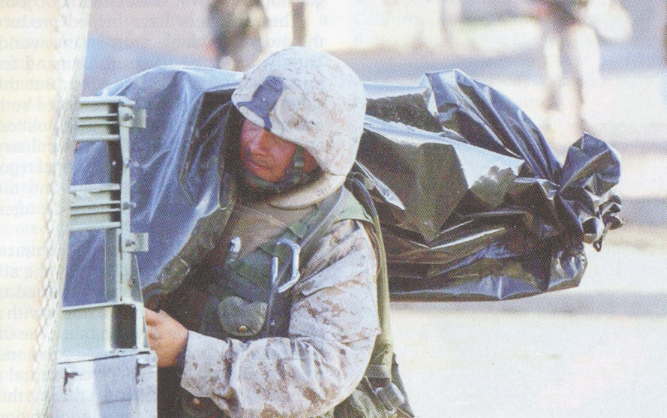
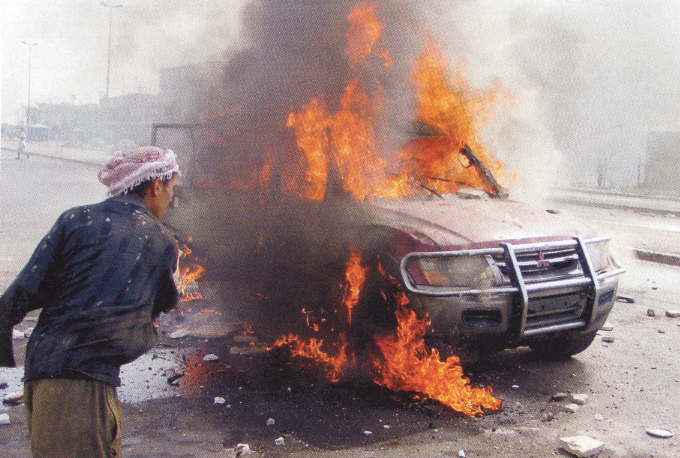
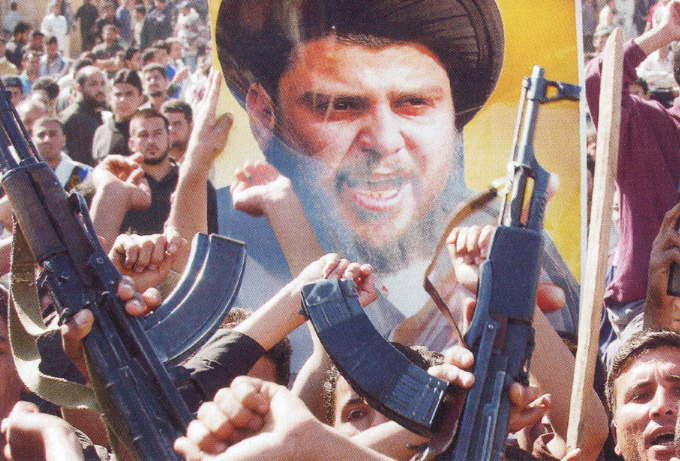
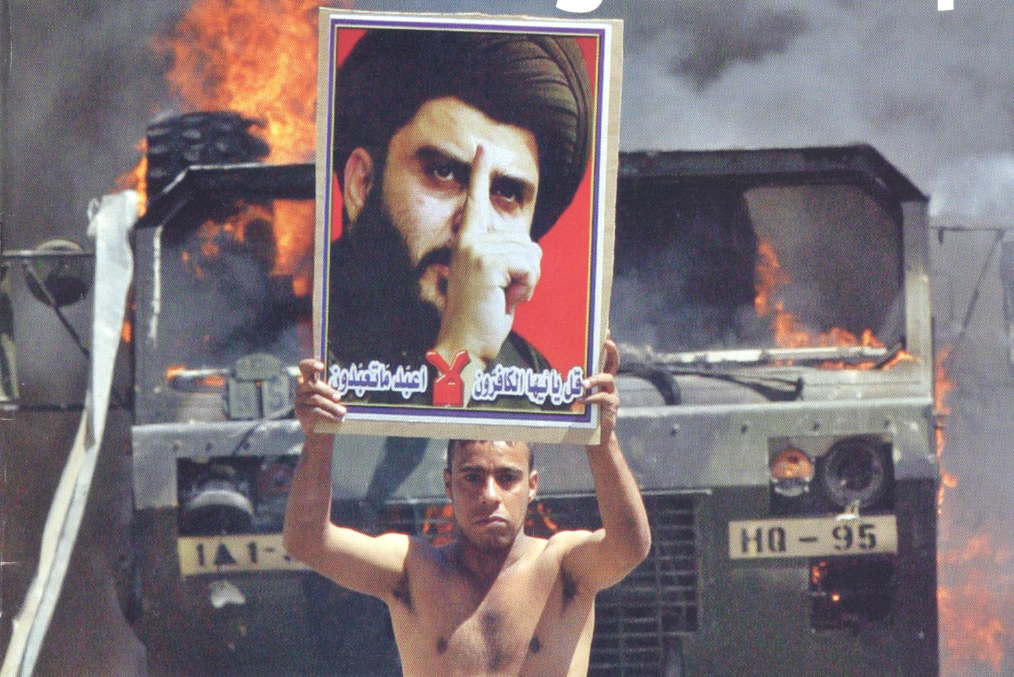
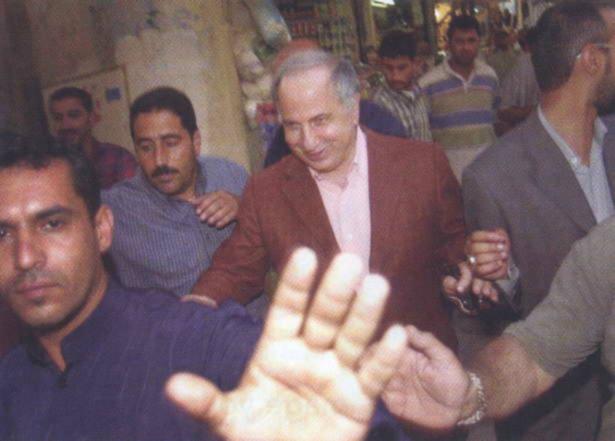
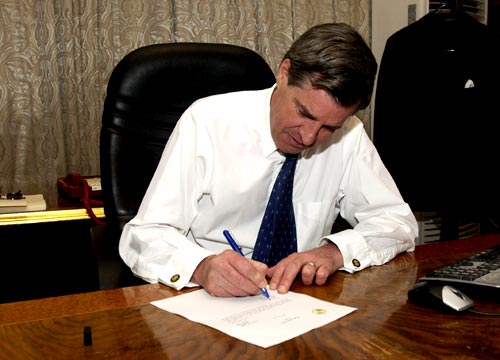
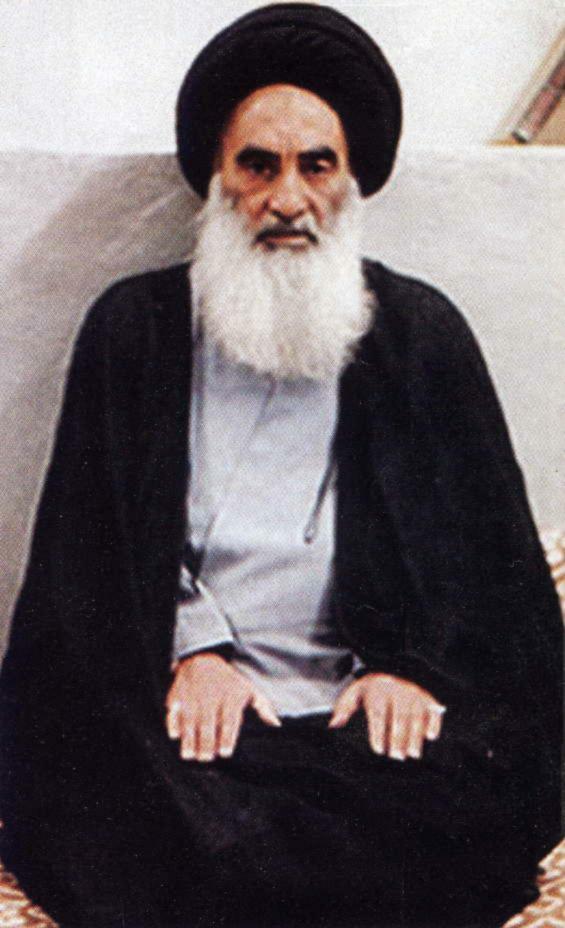
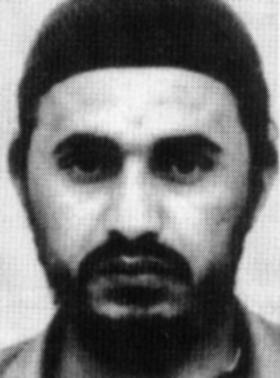
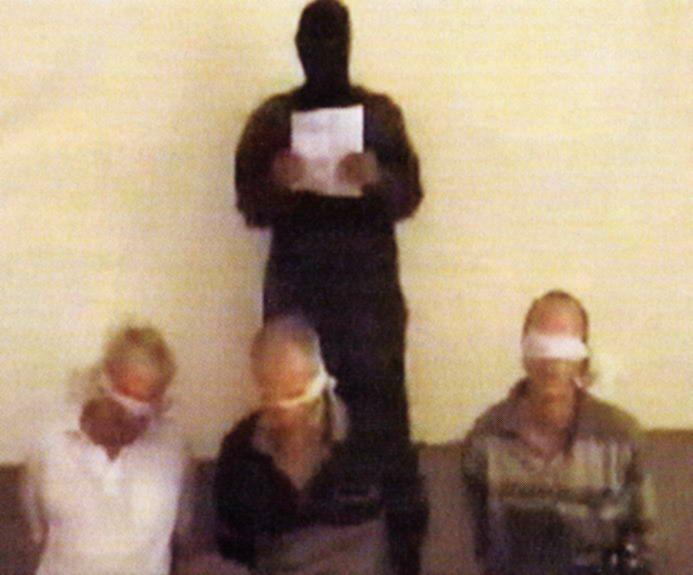
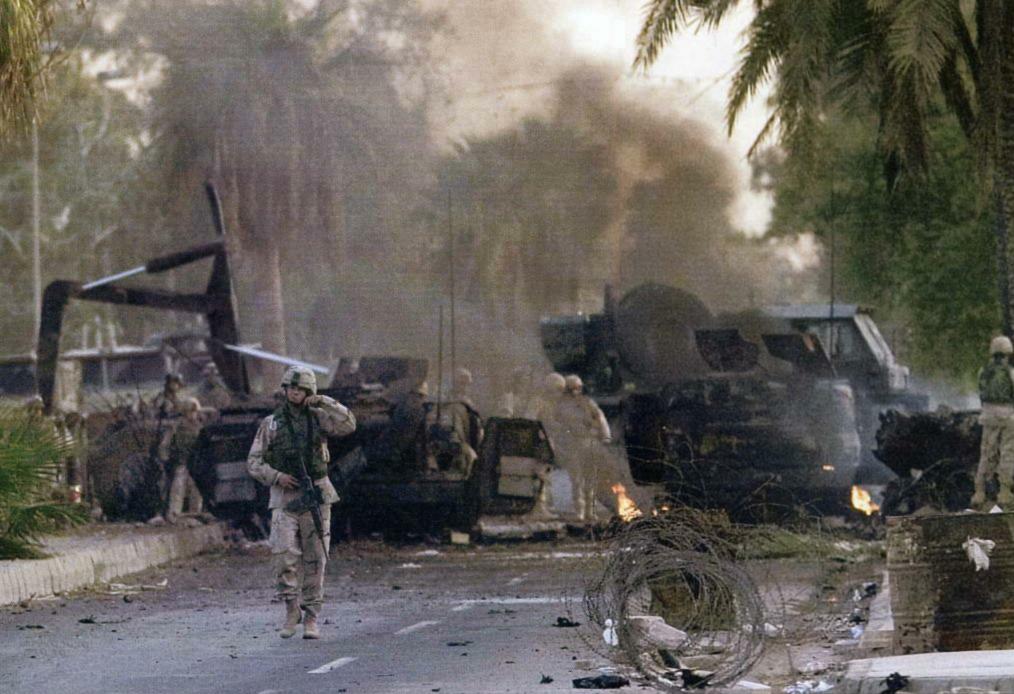
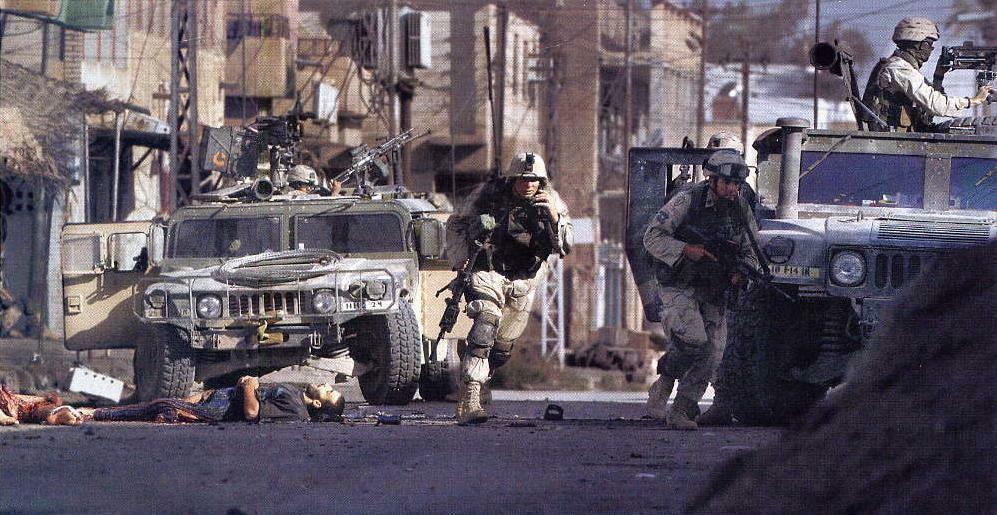
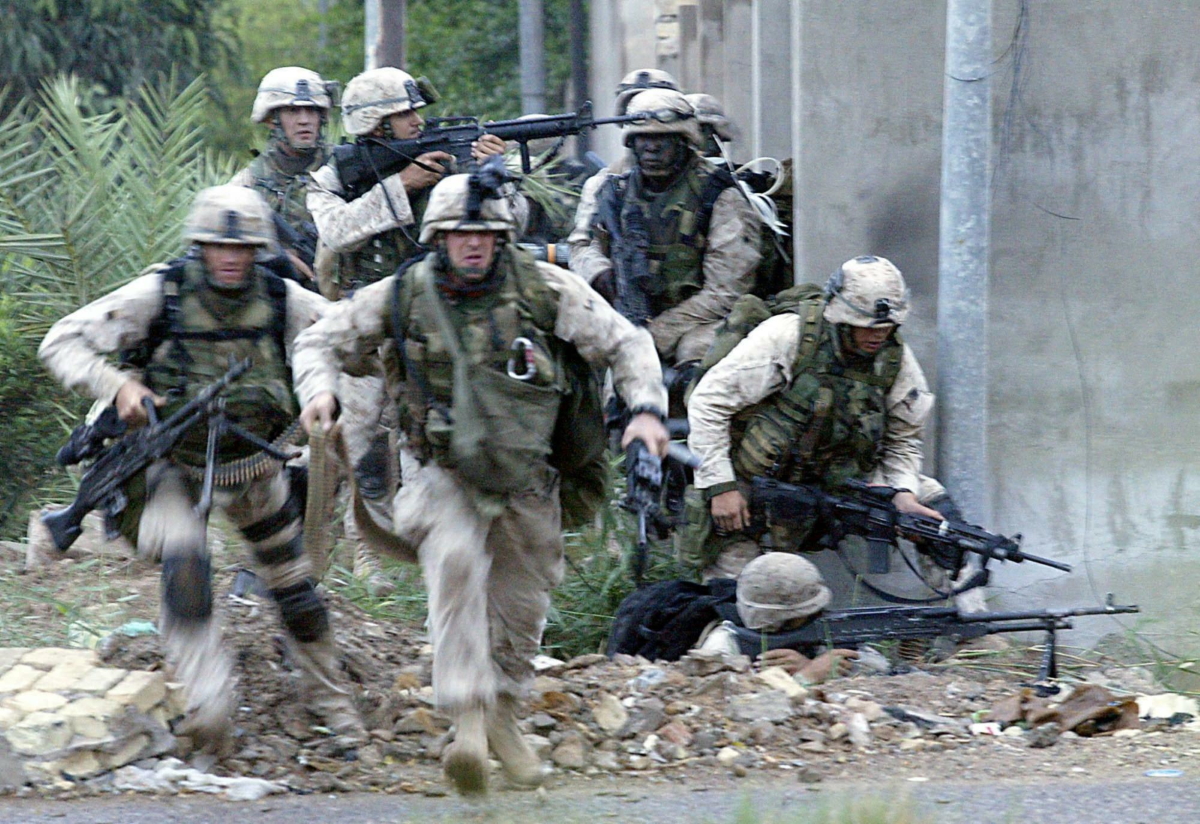
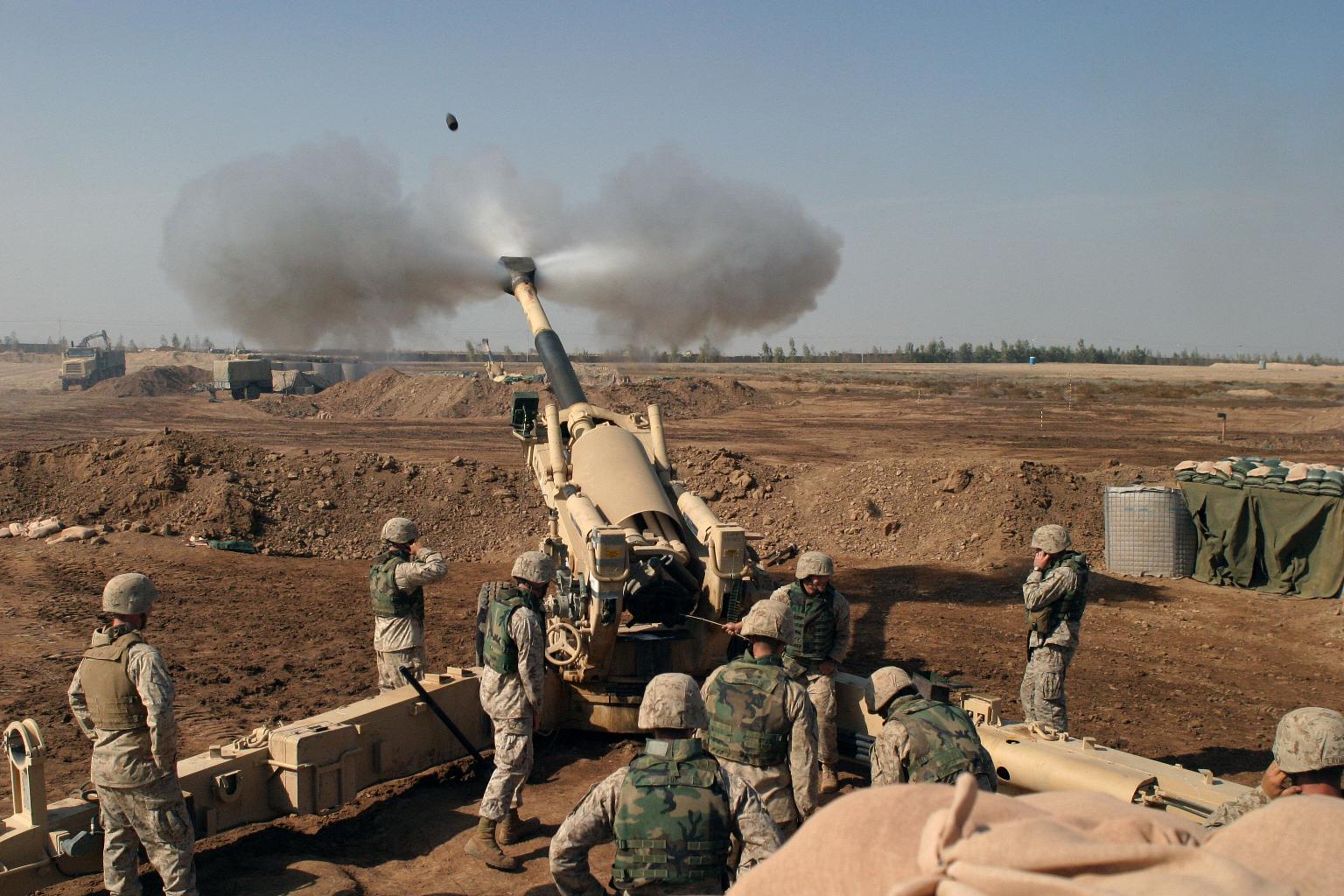
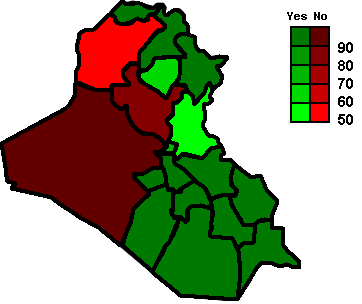
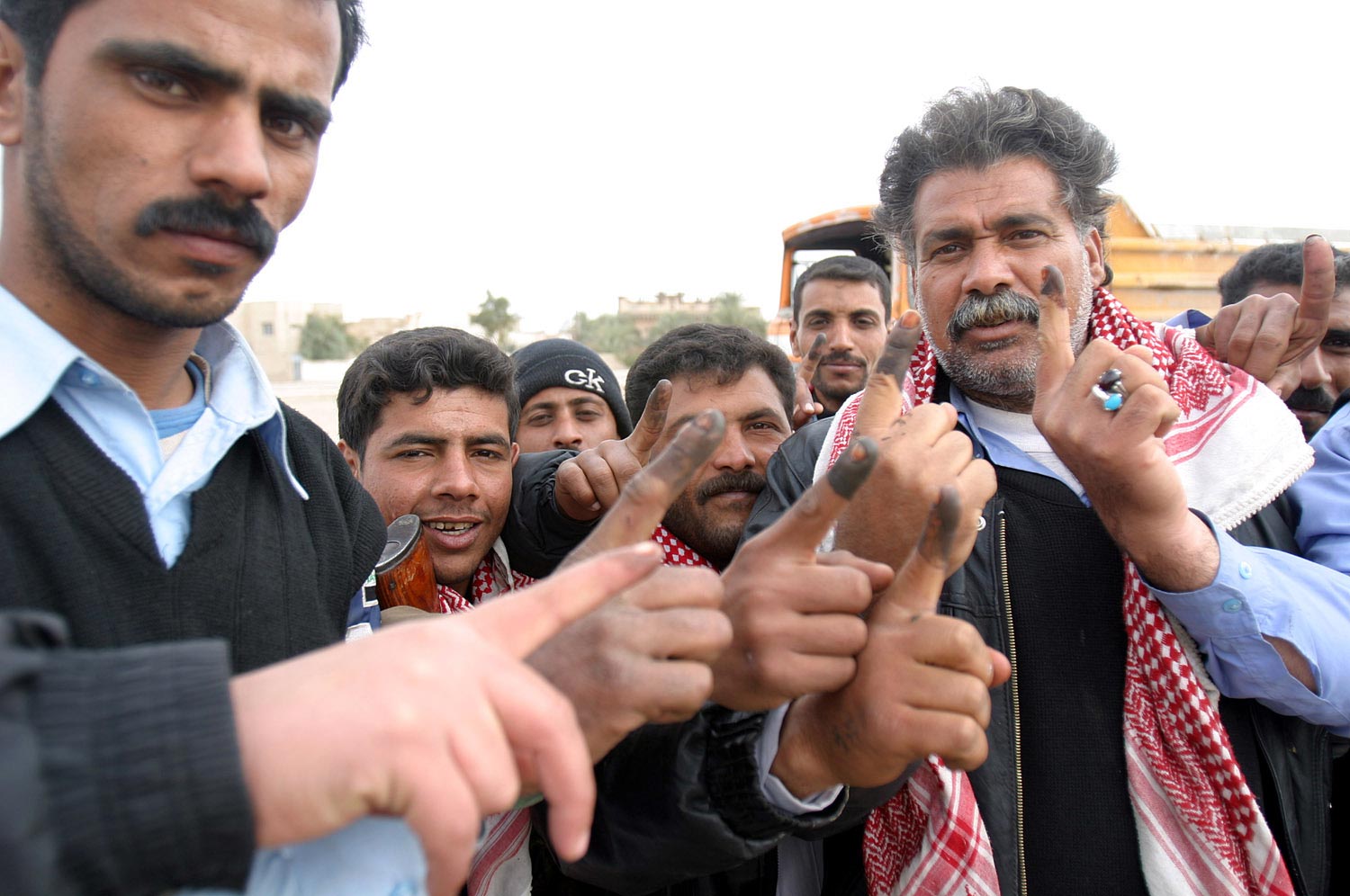
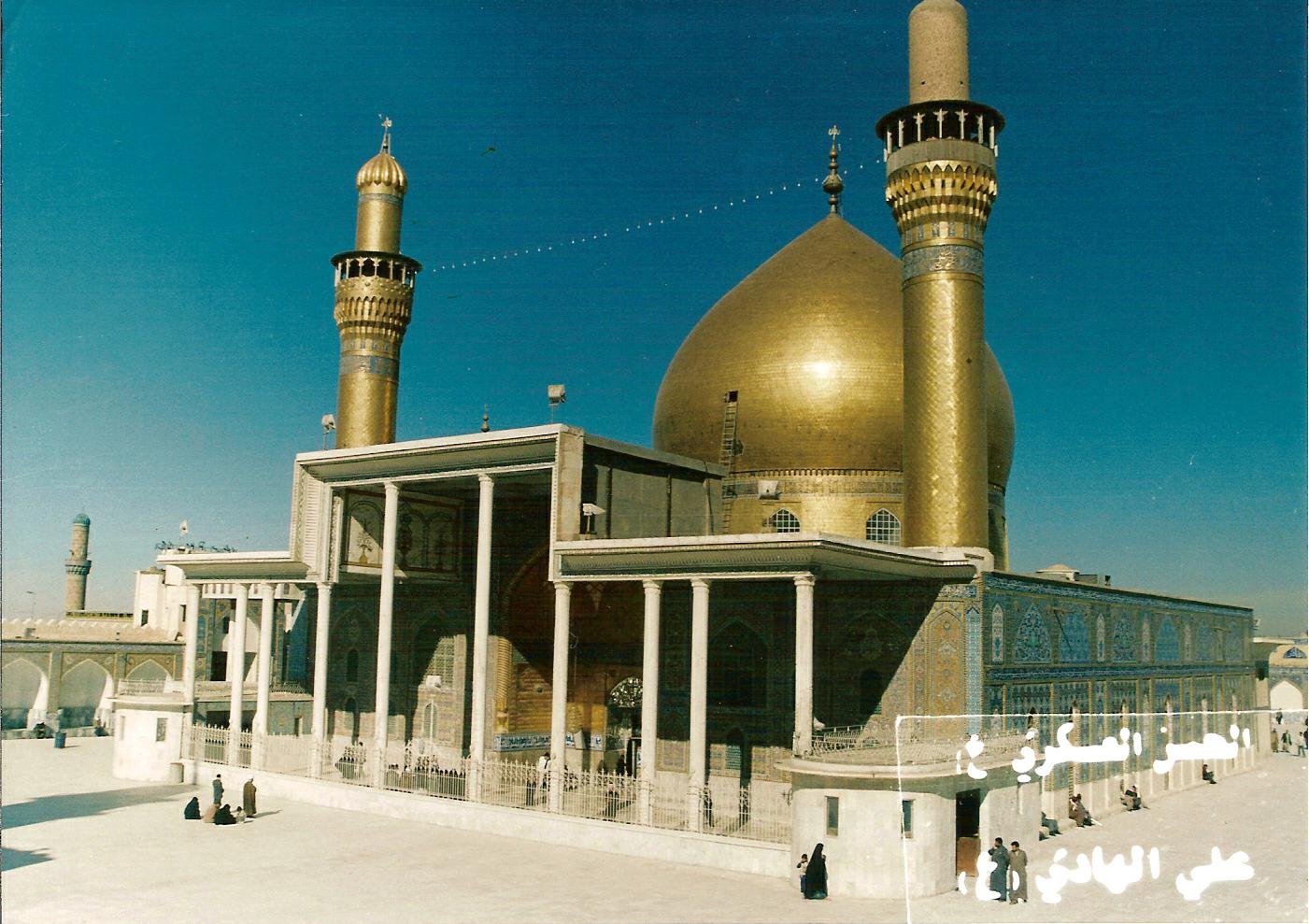
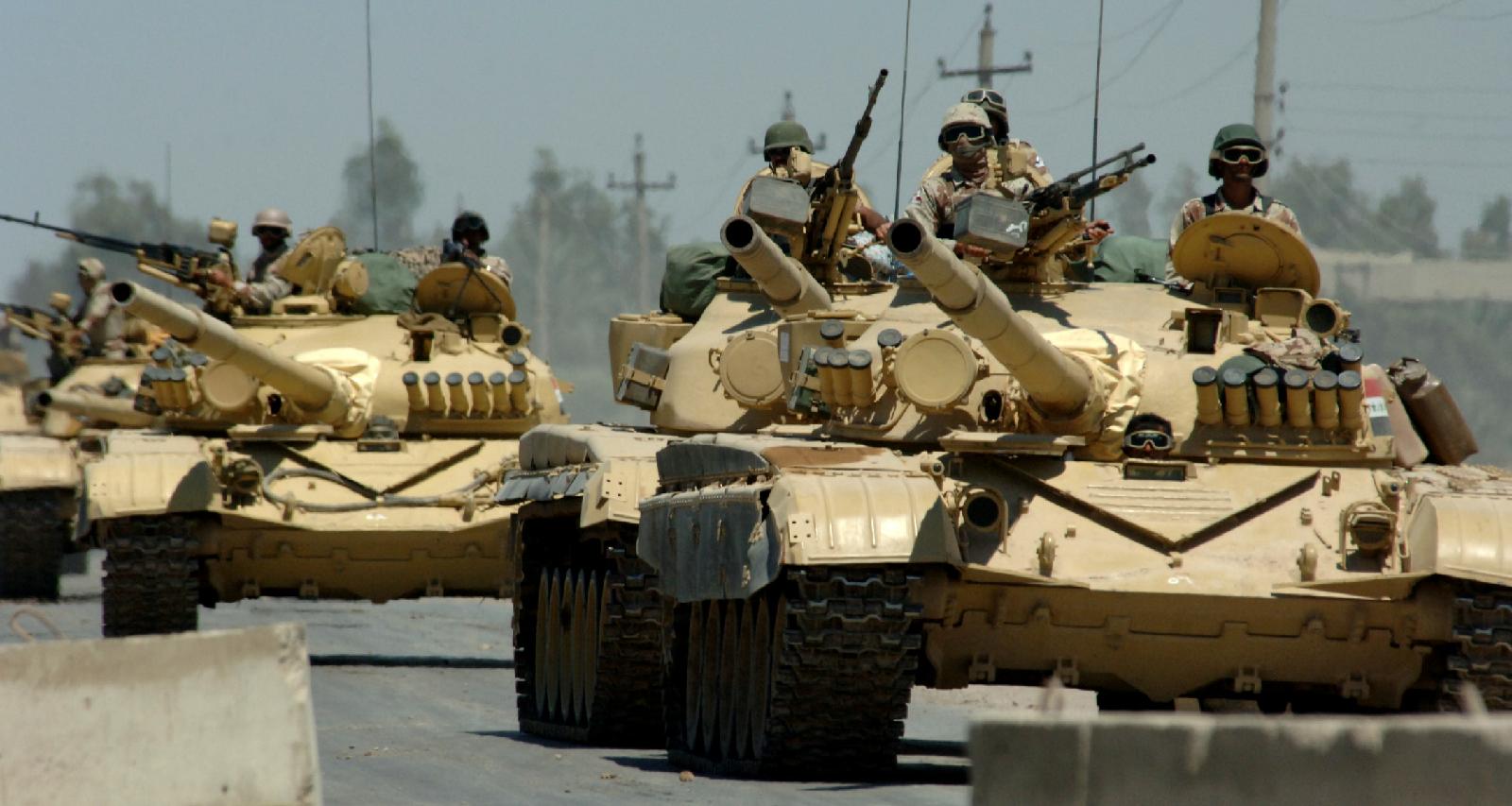
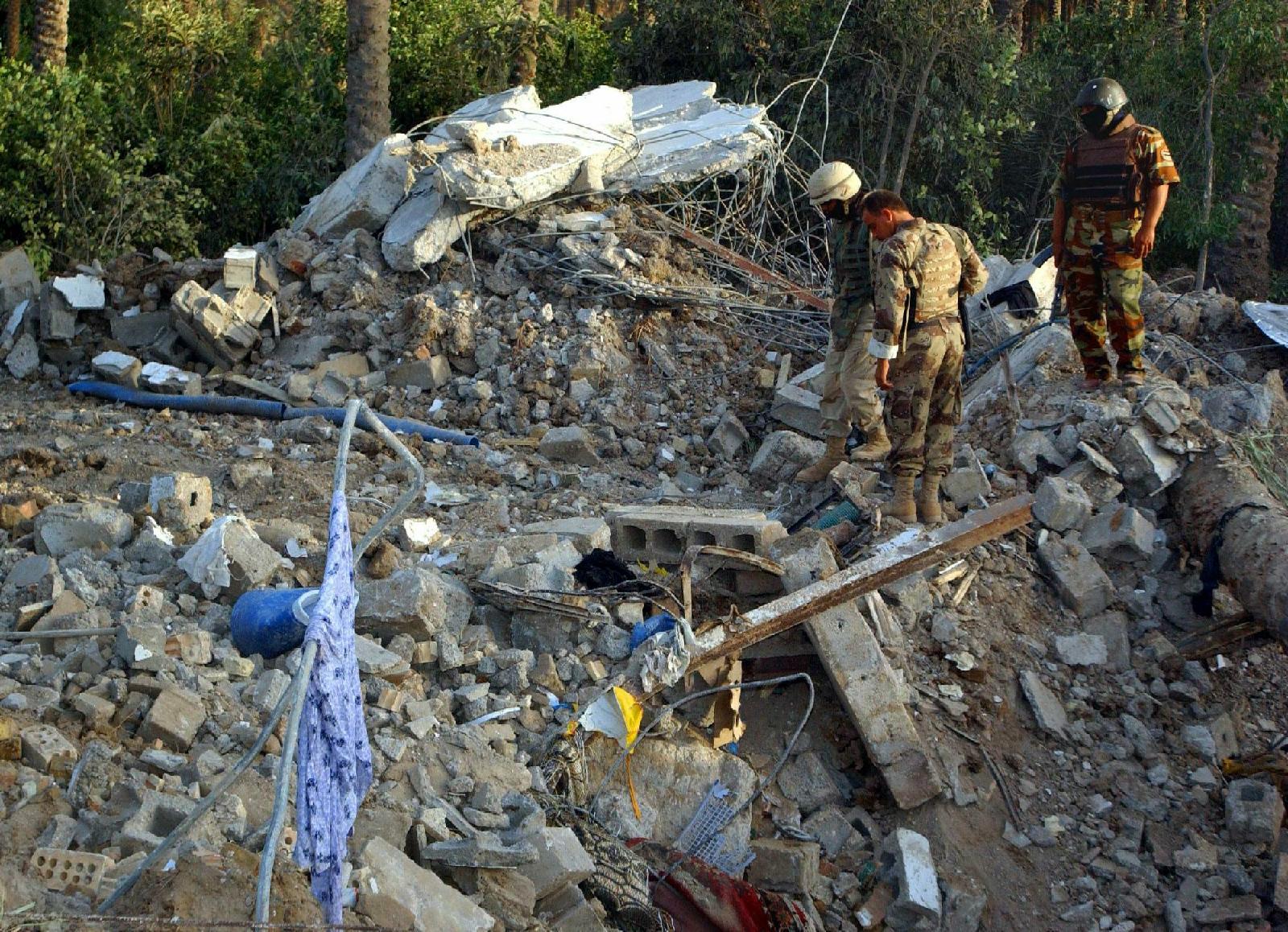
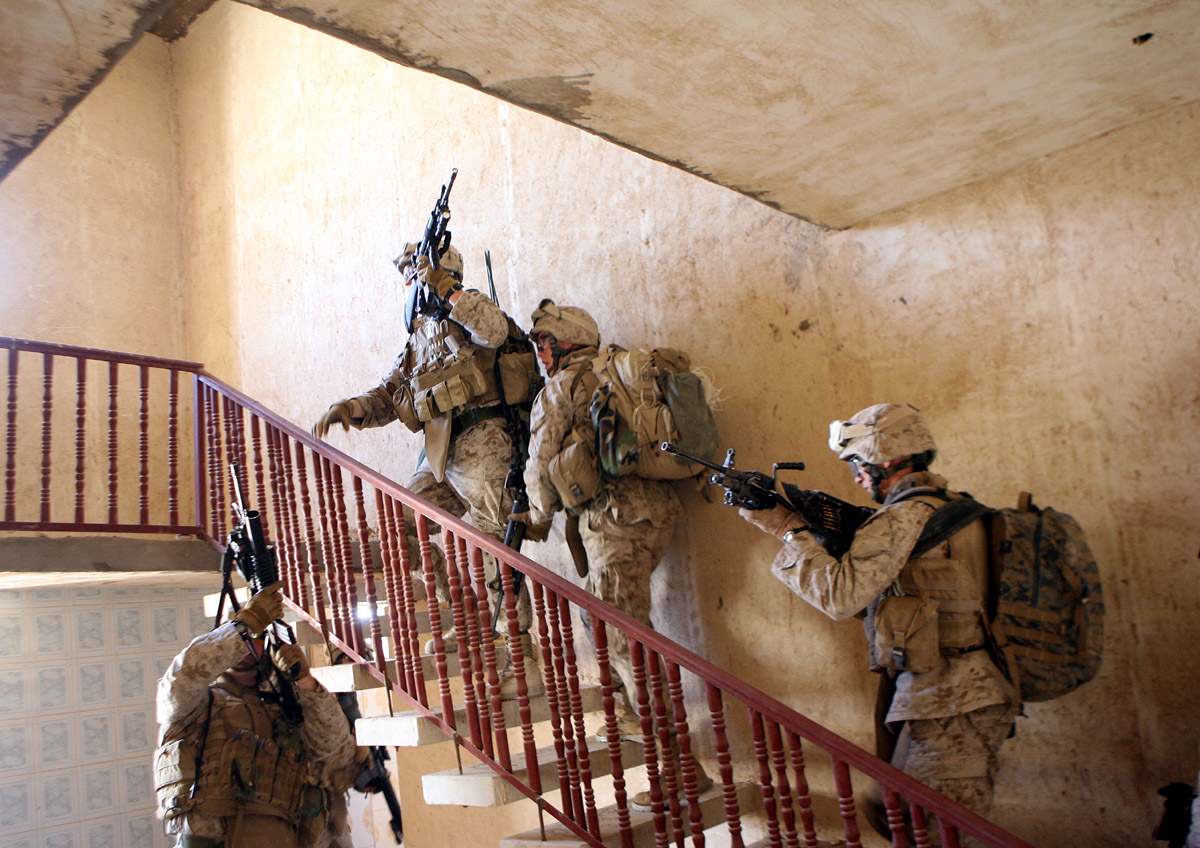
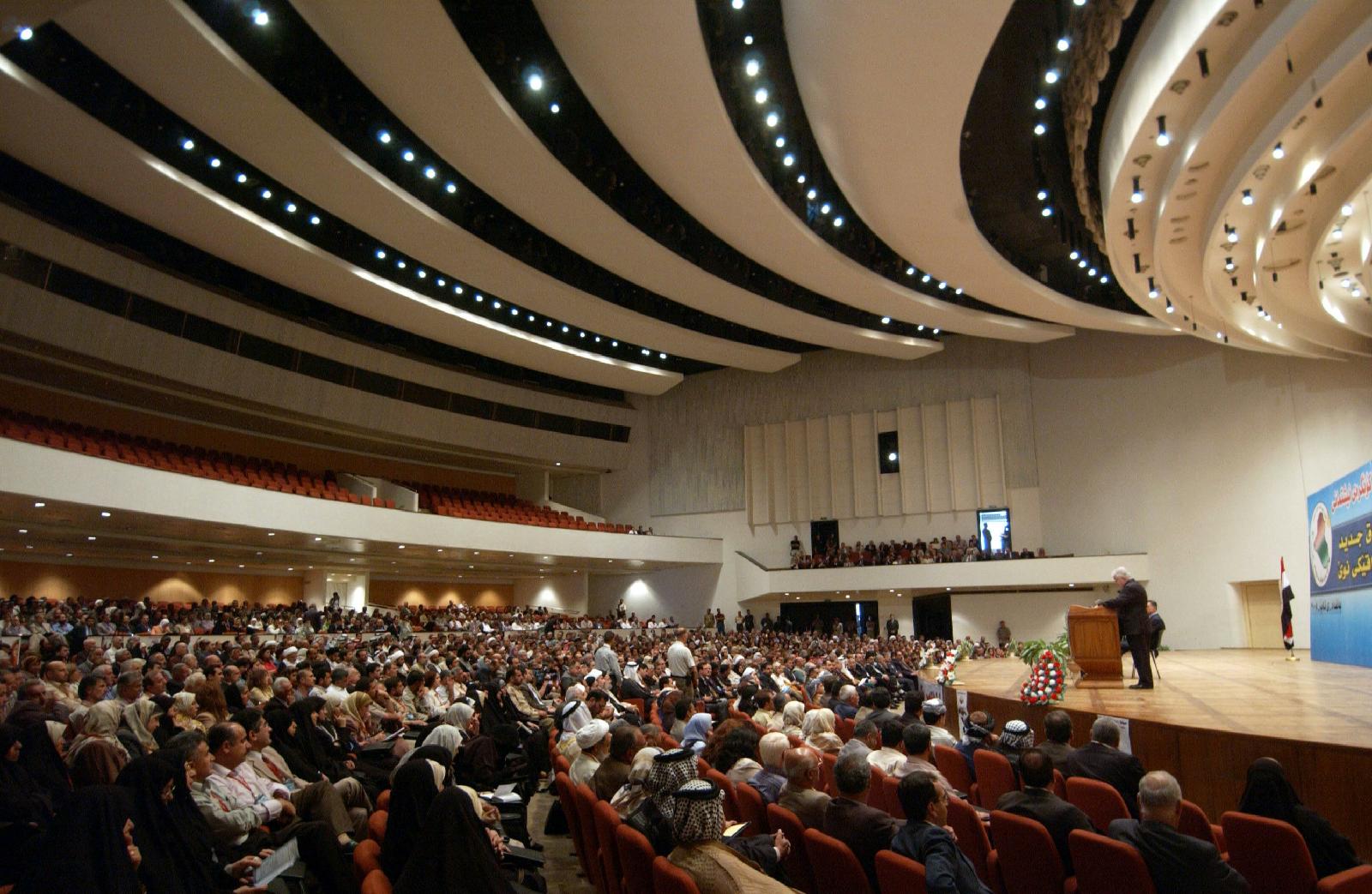

 Miles
H. Hodges
Miles
H. Hodges